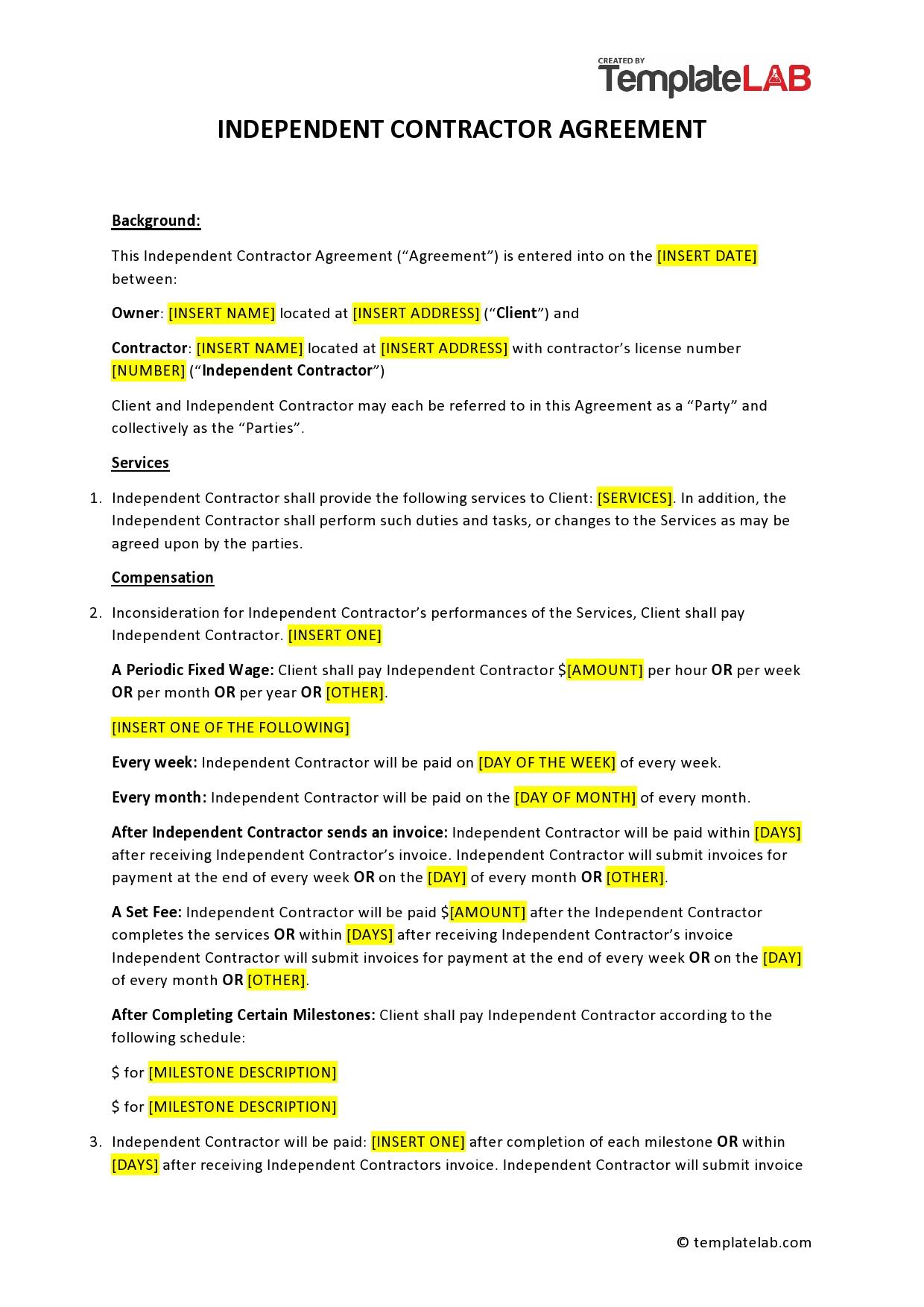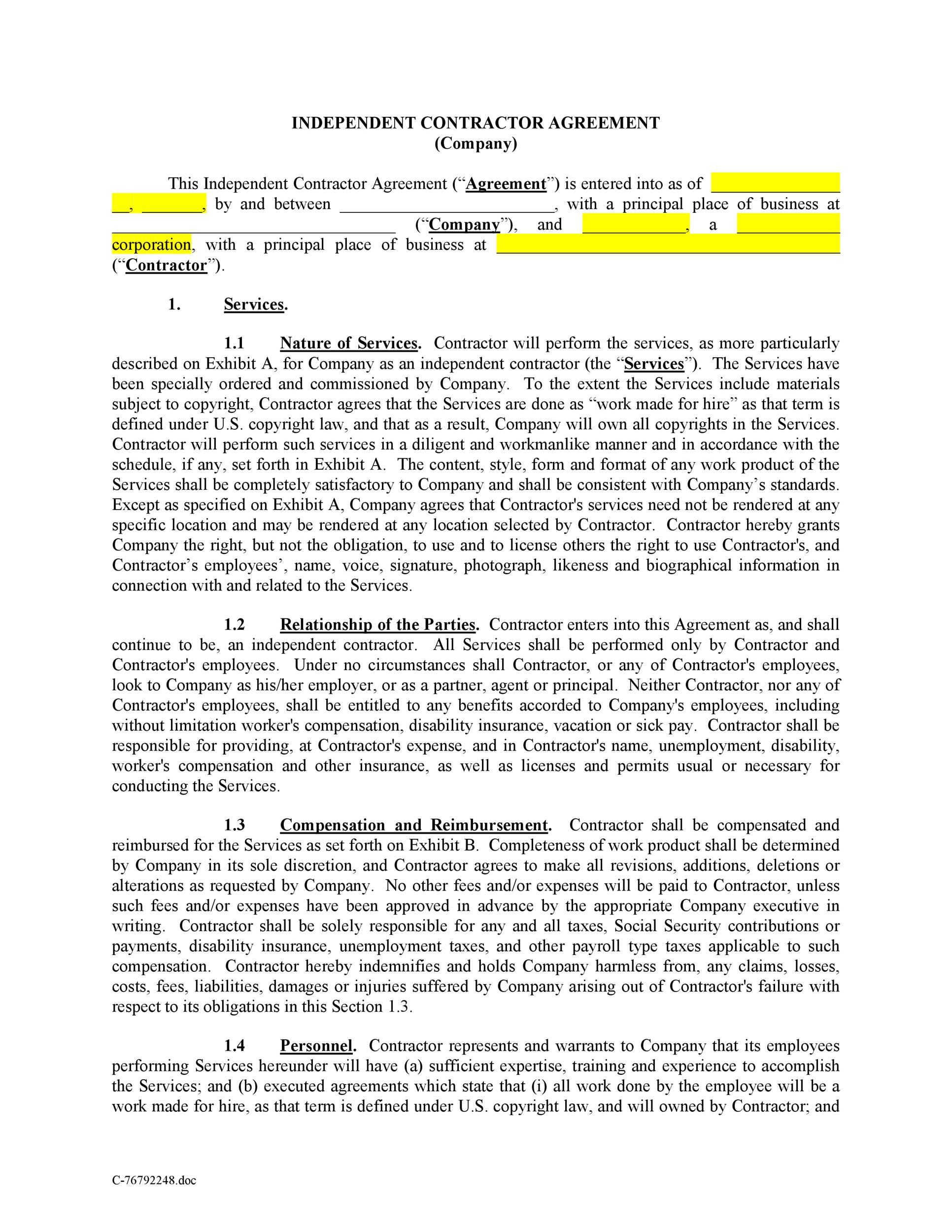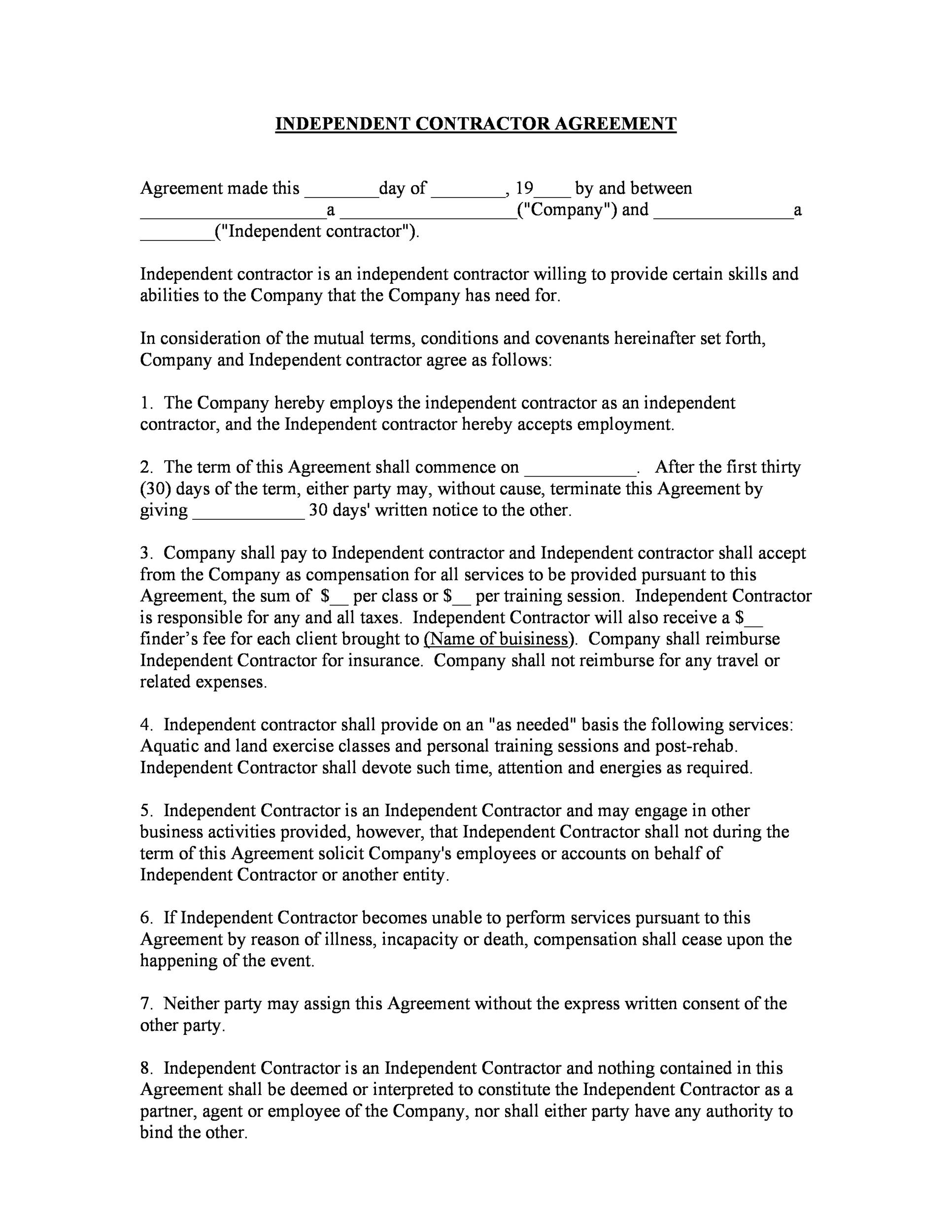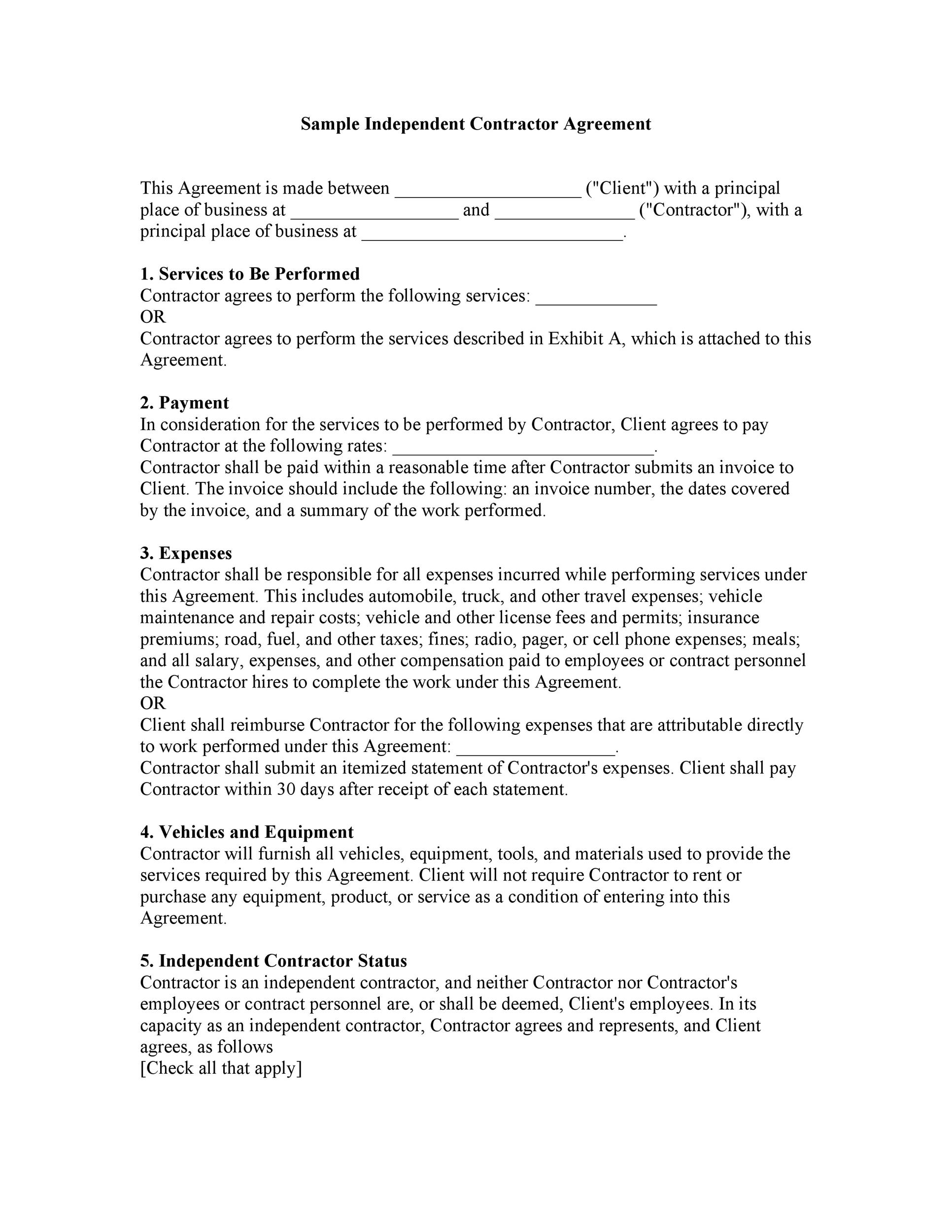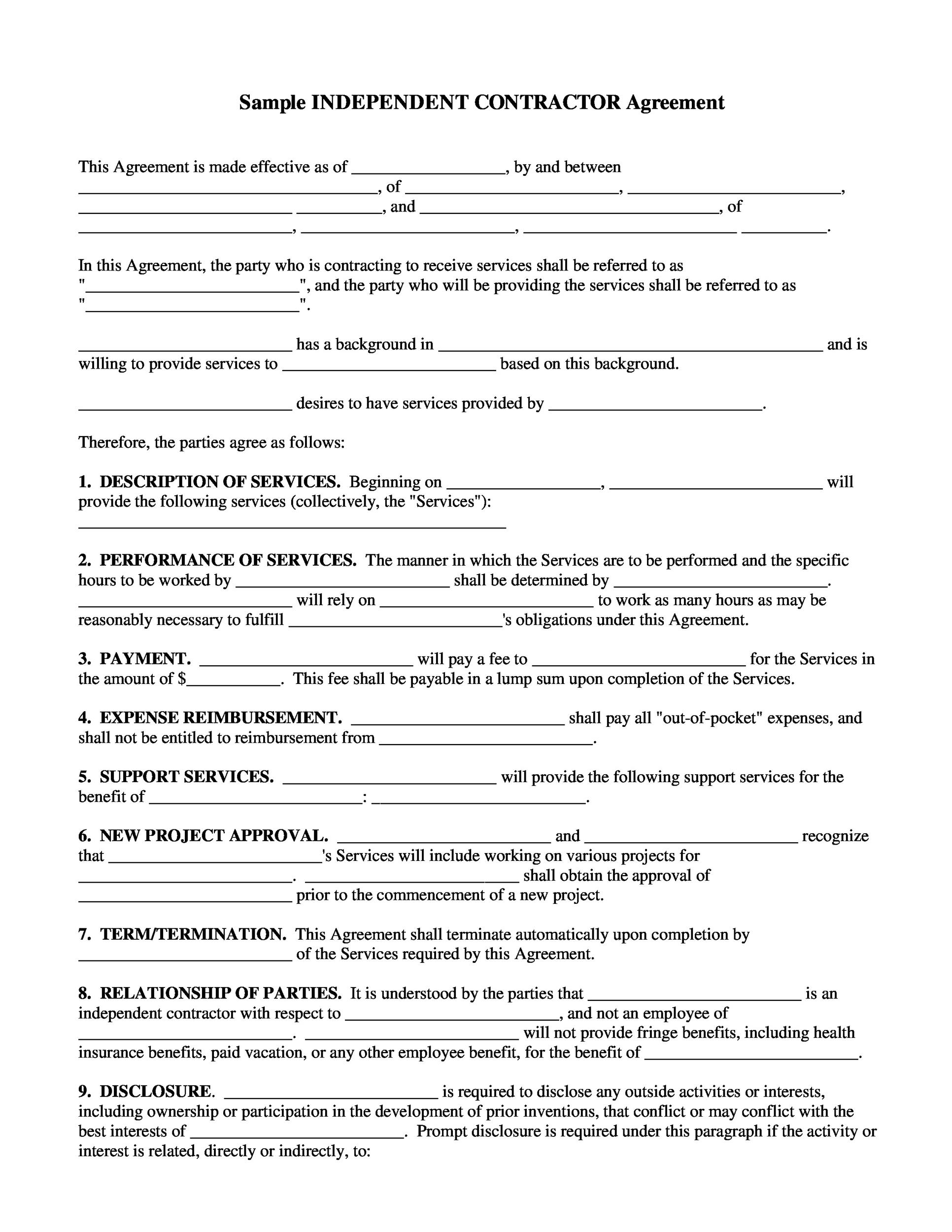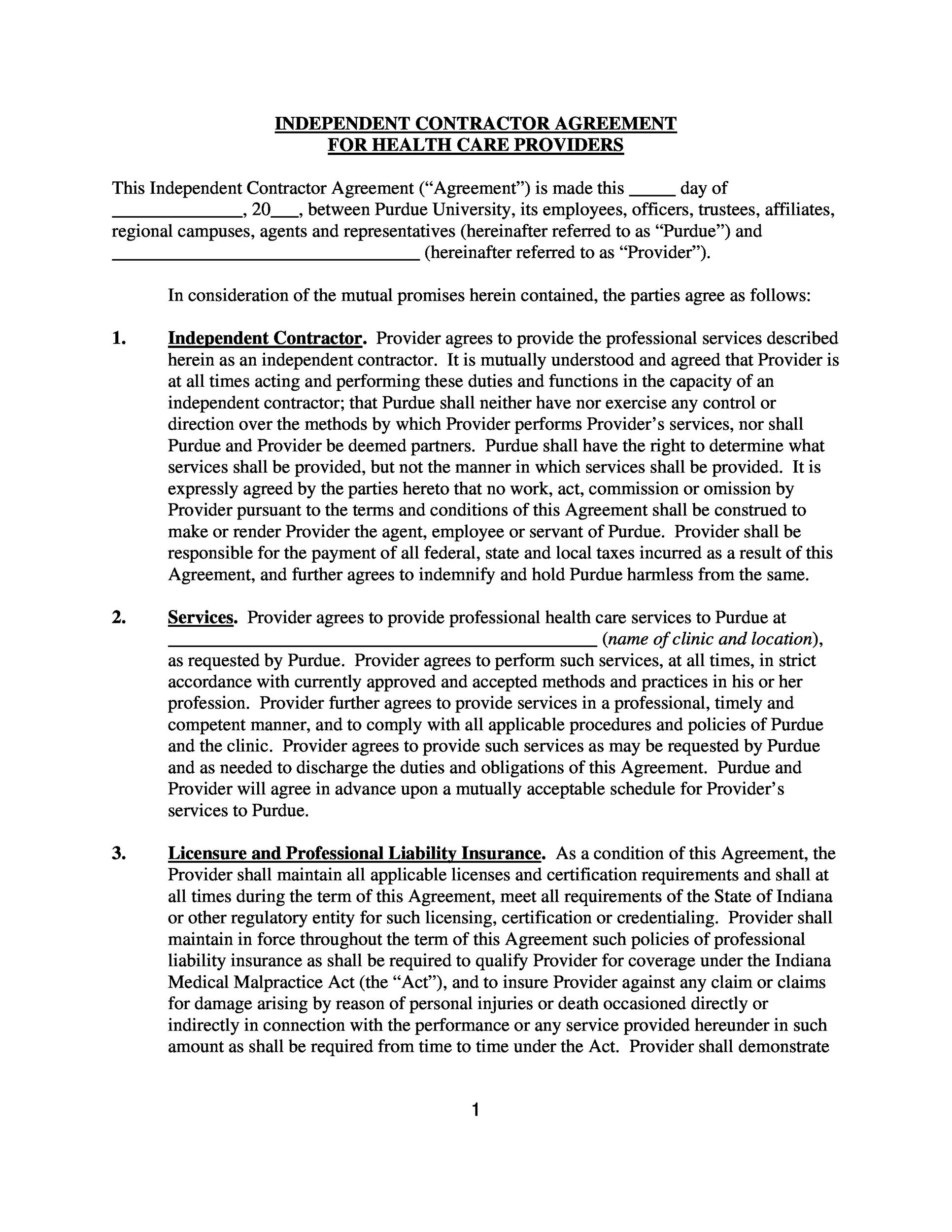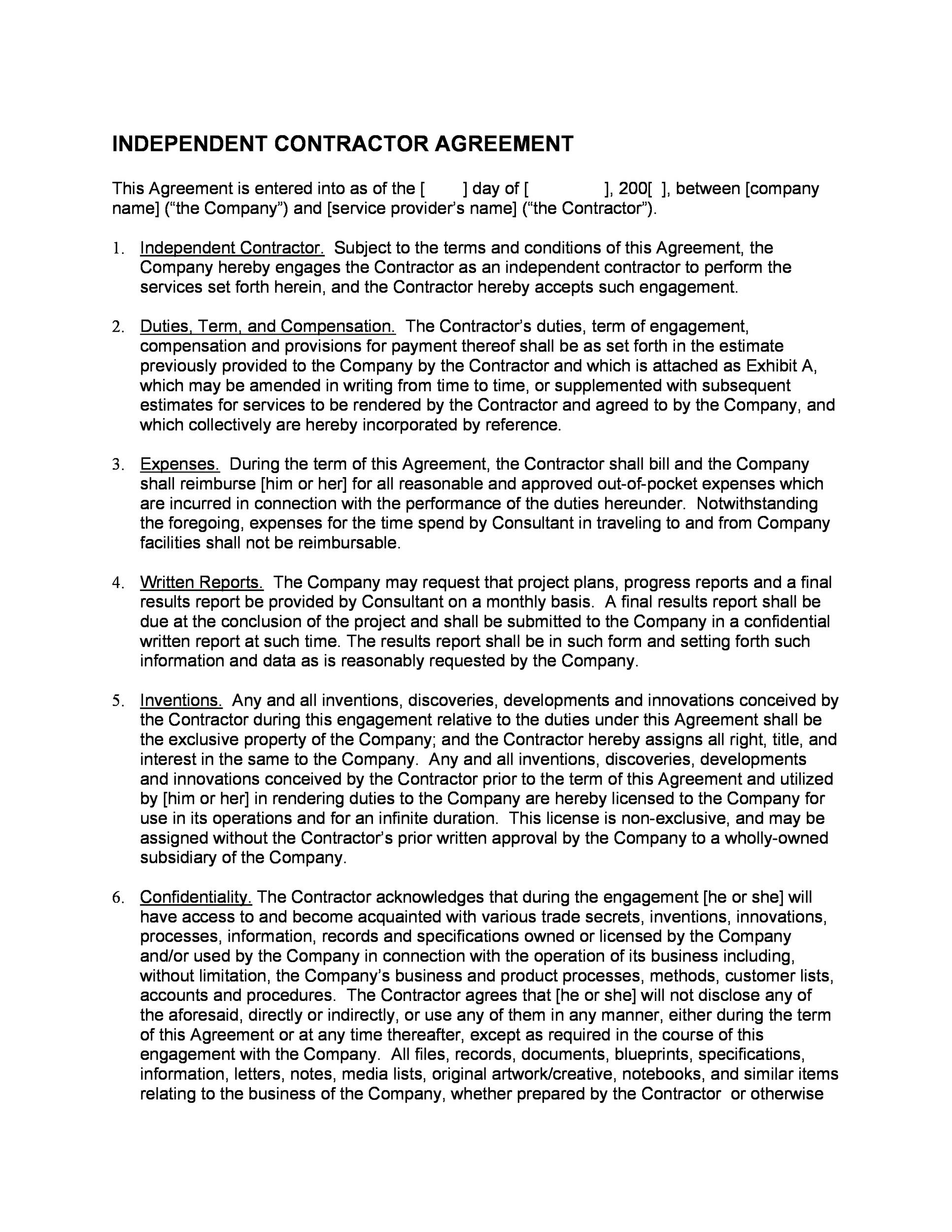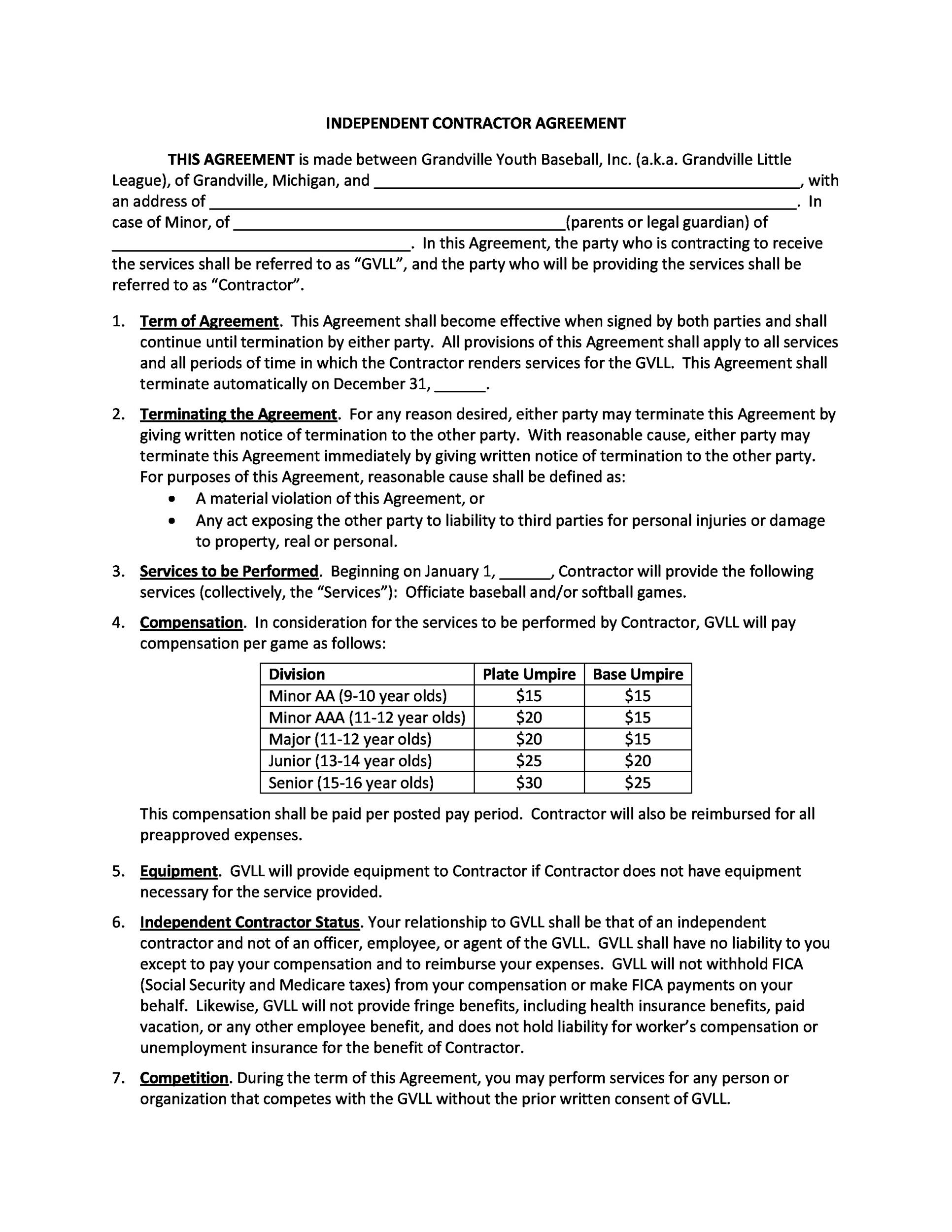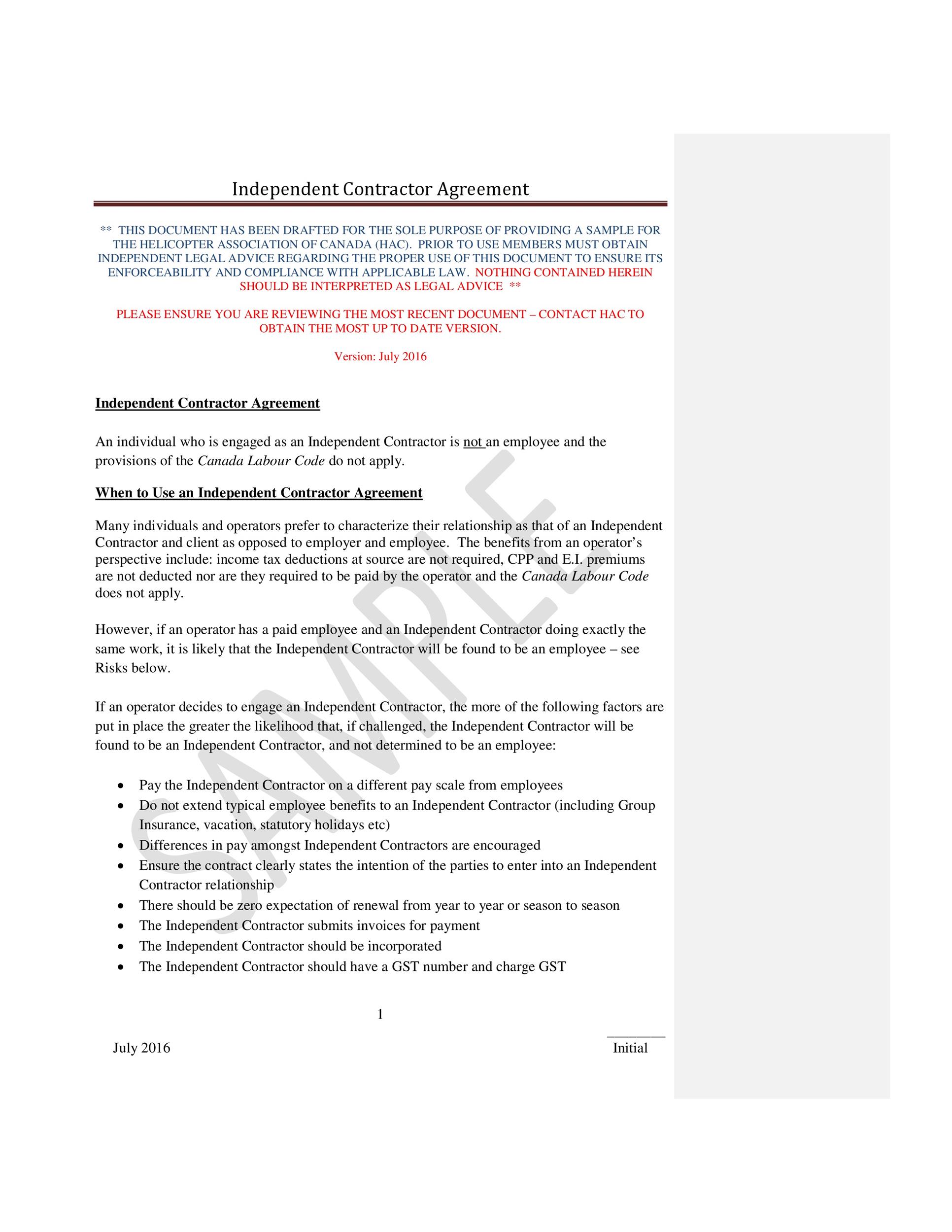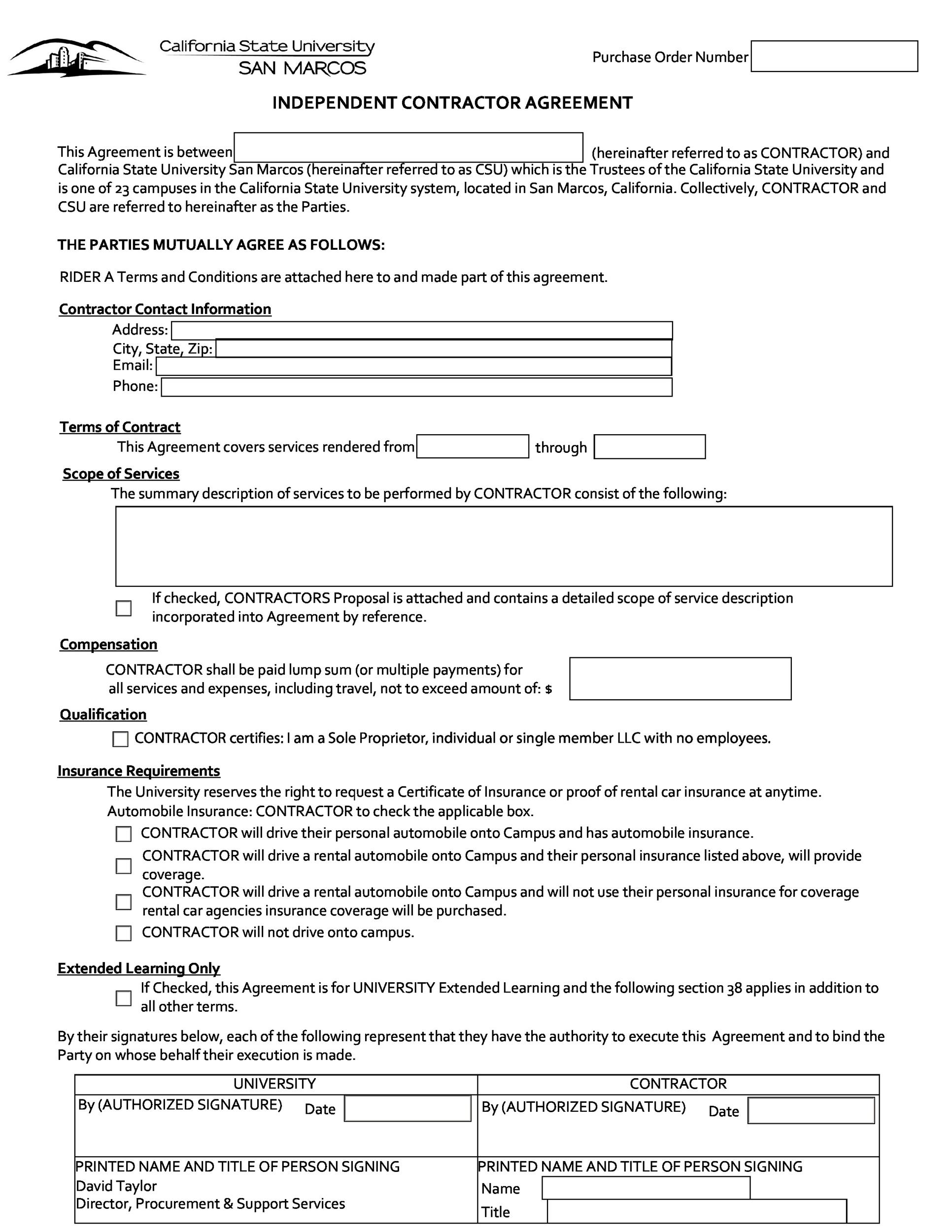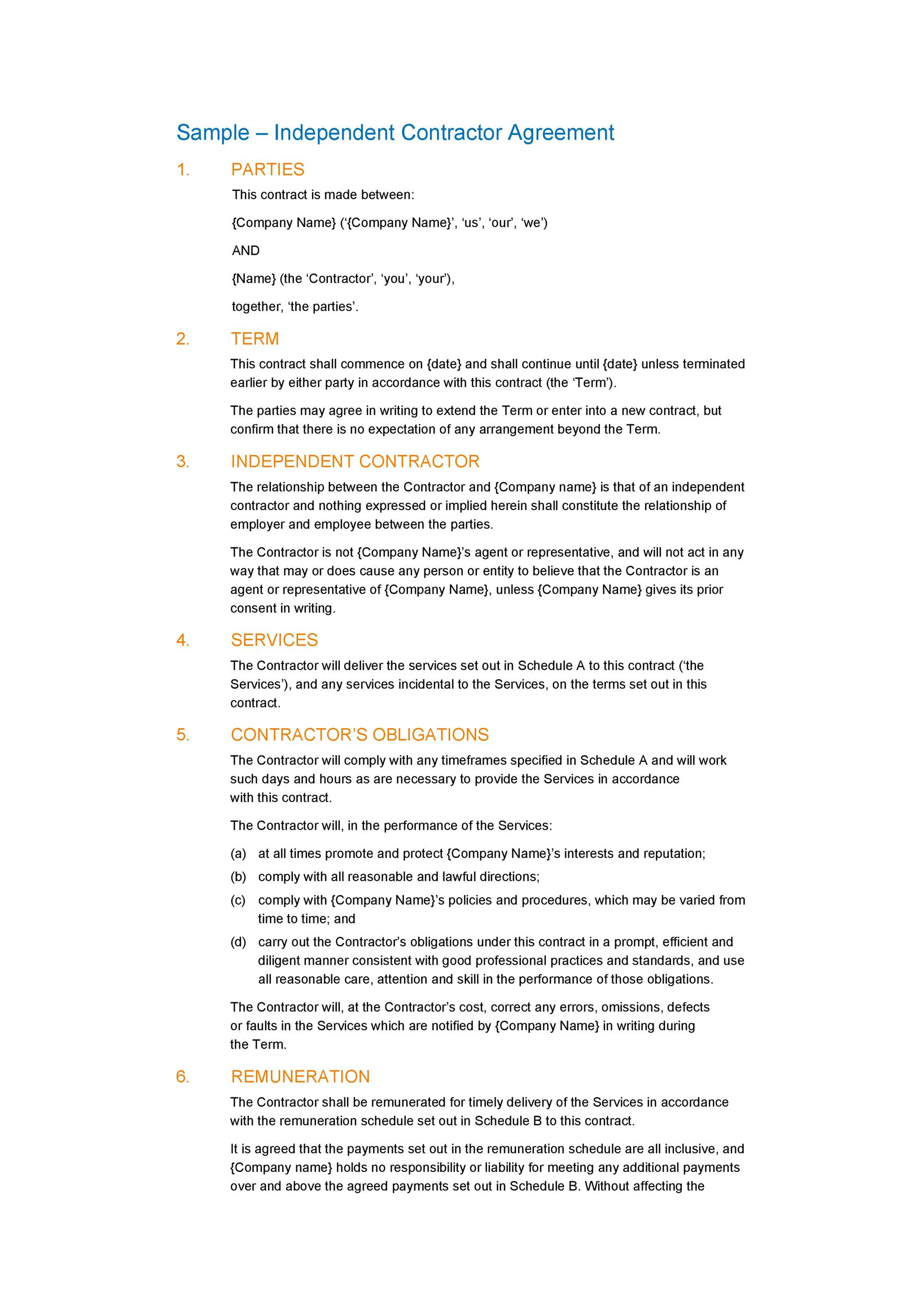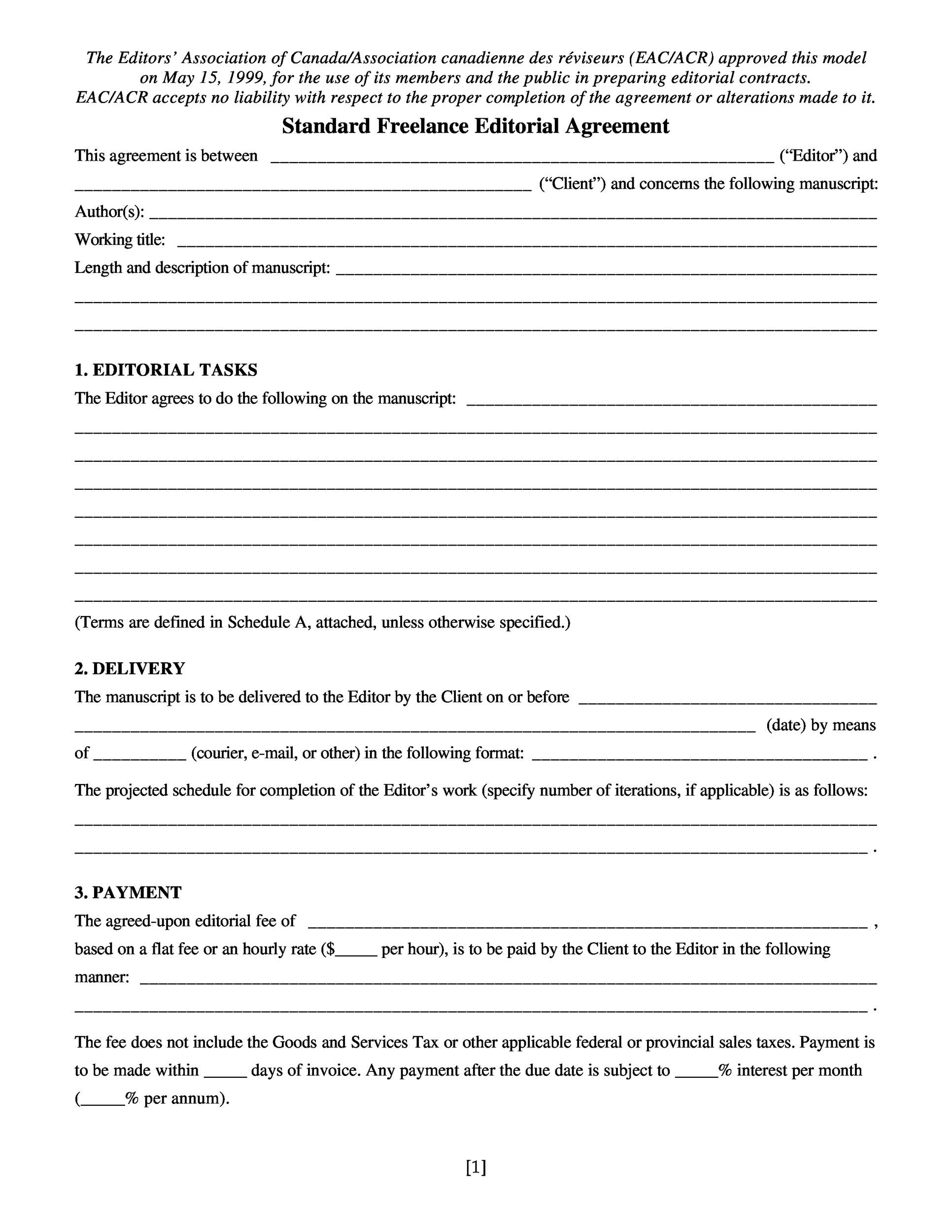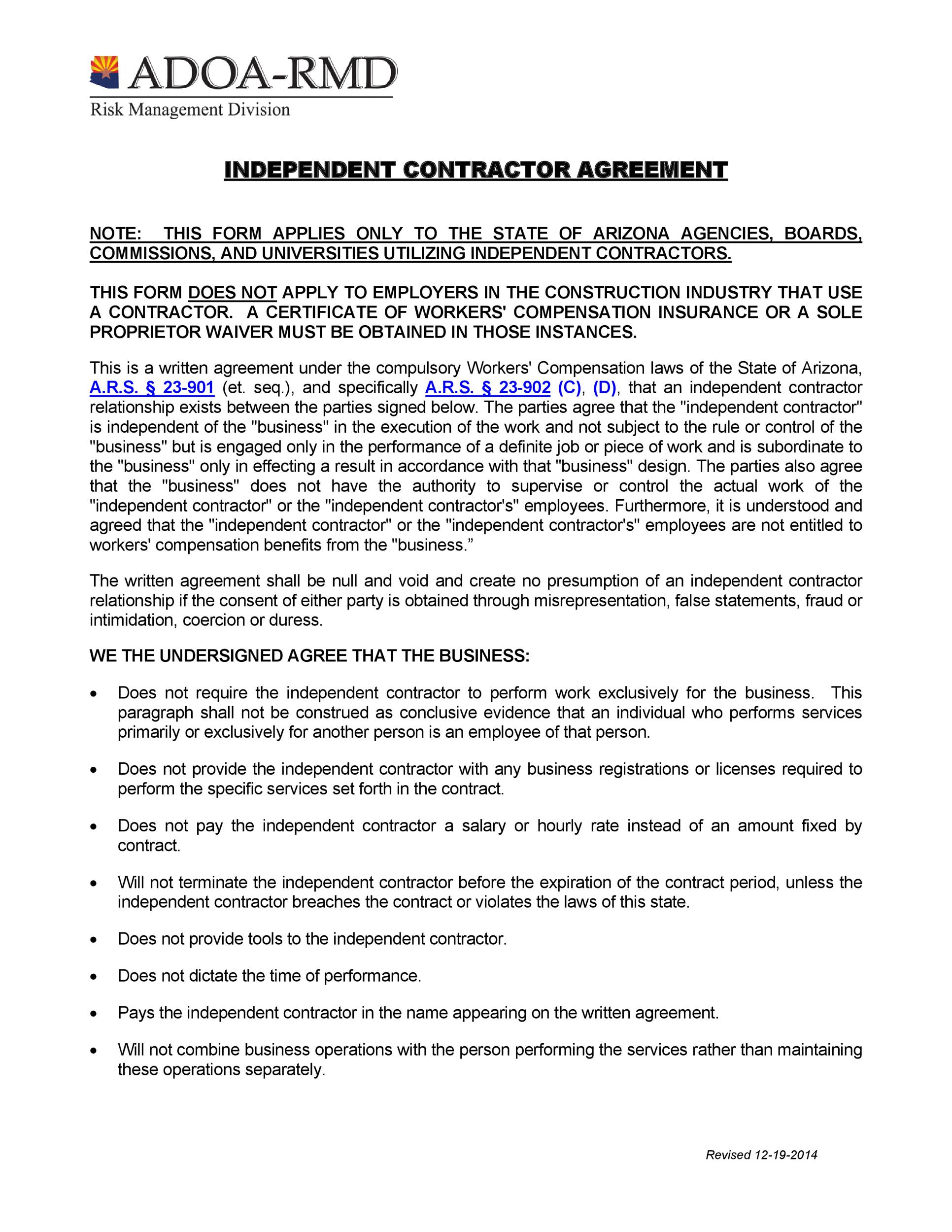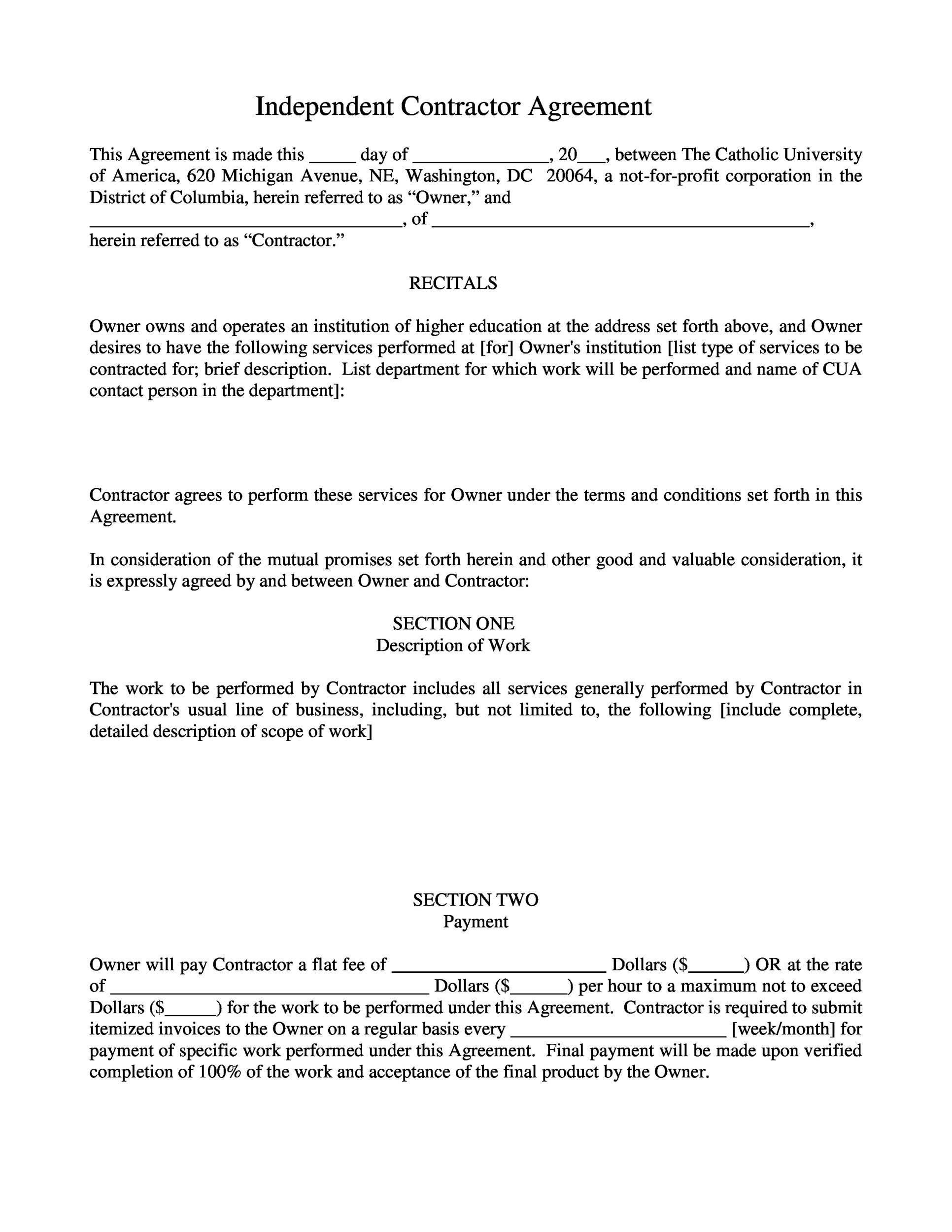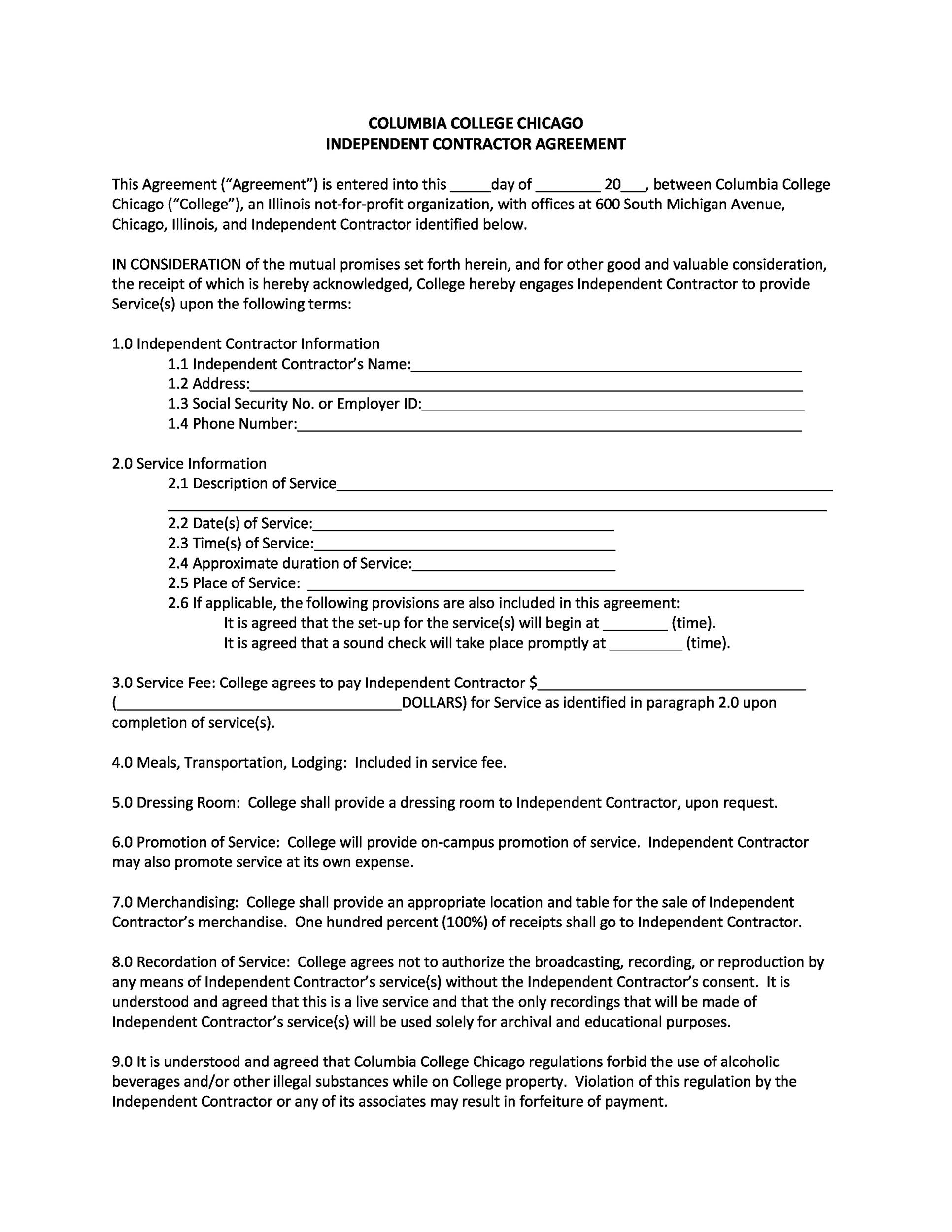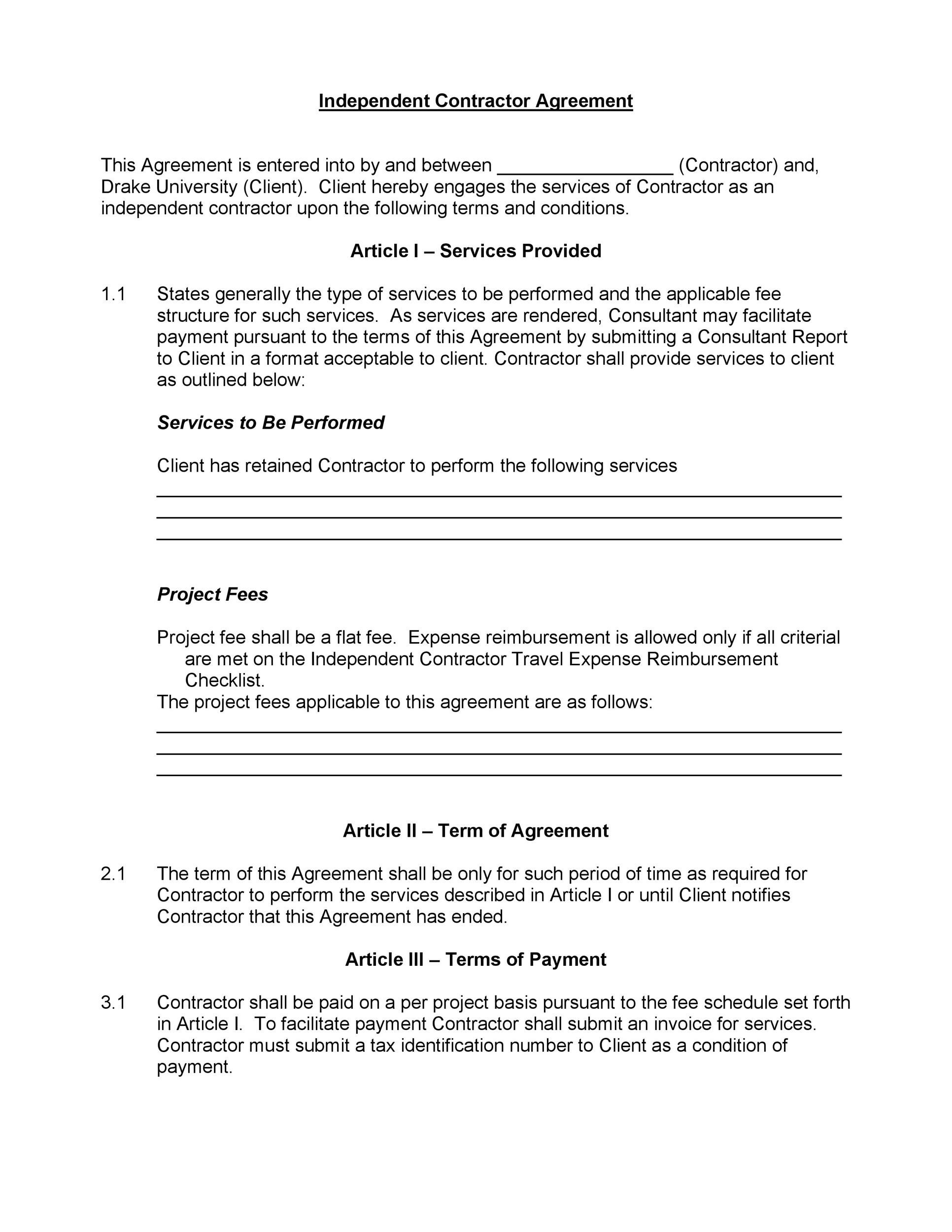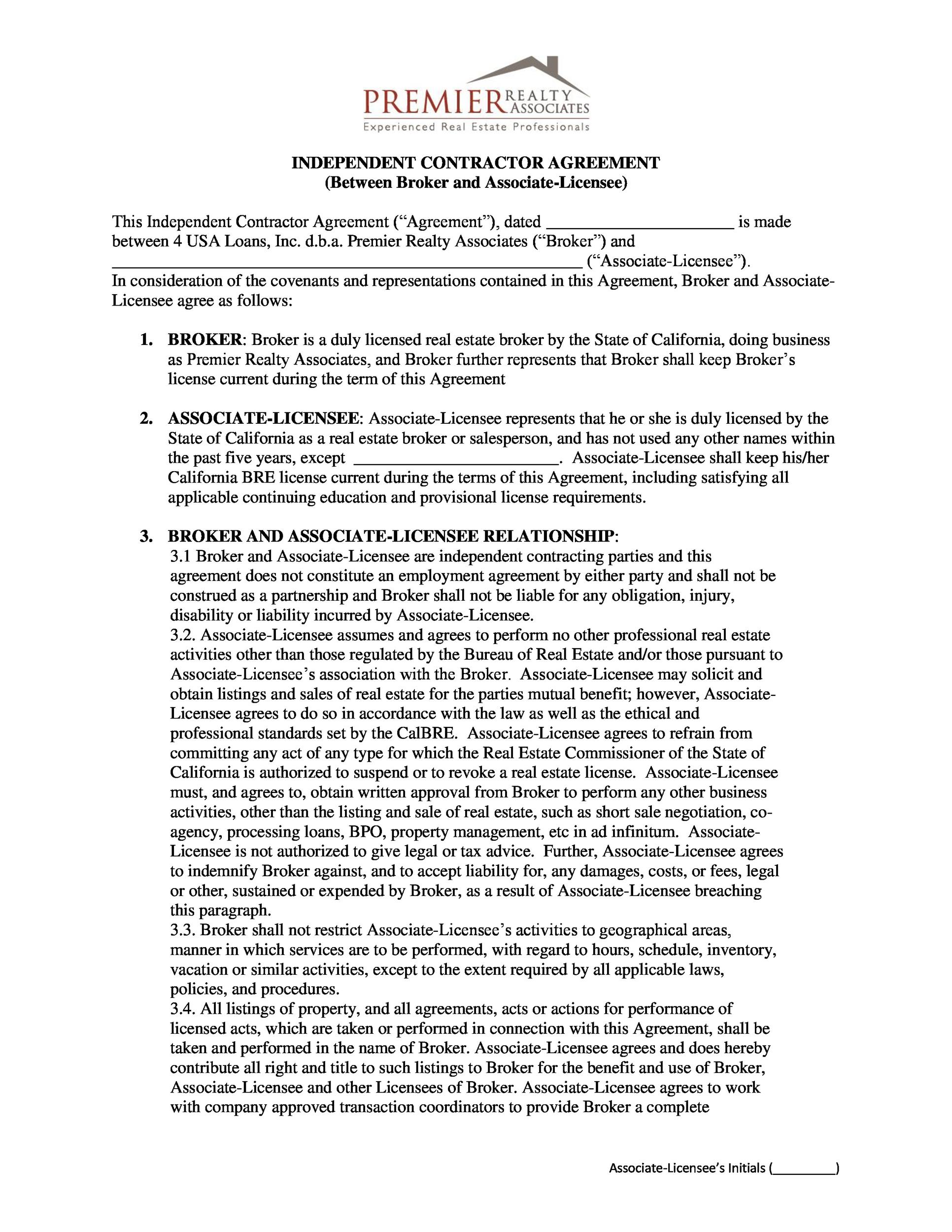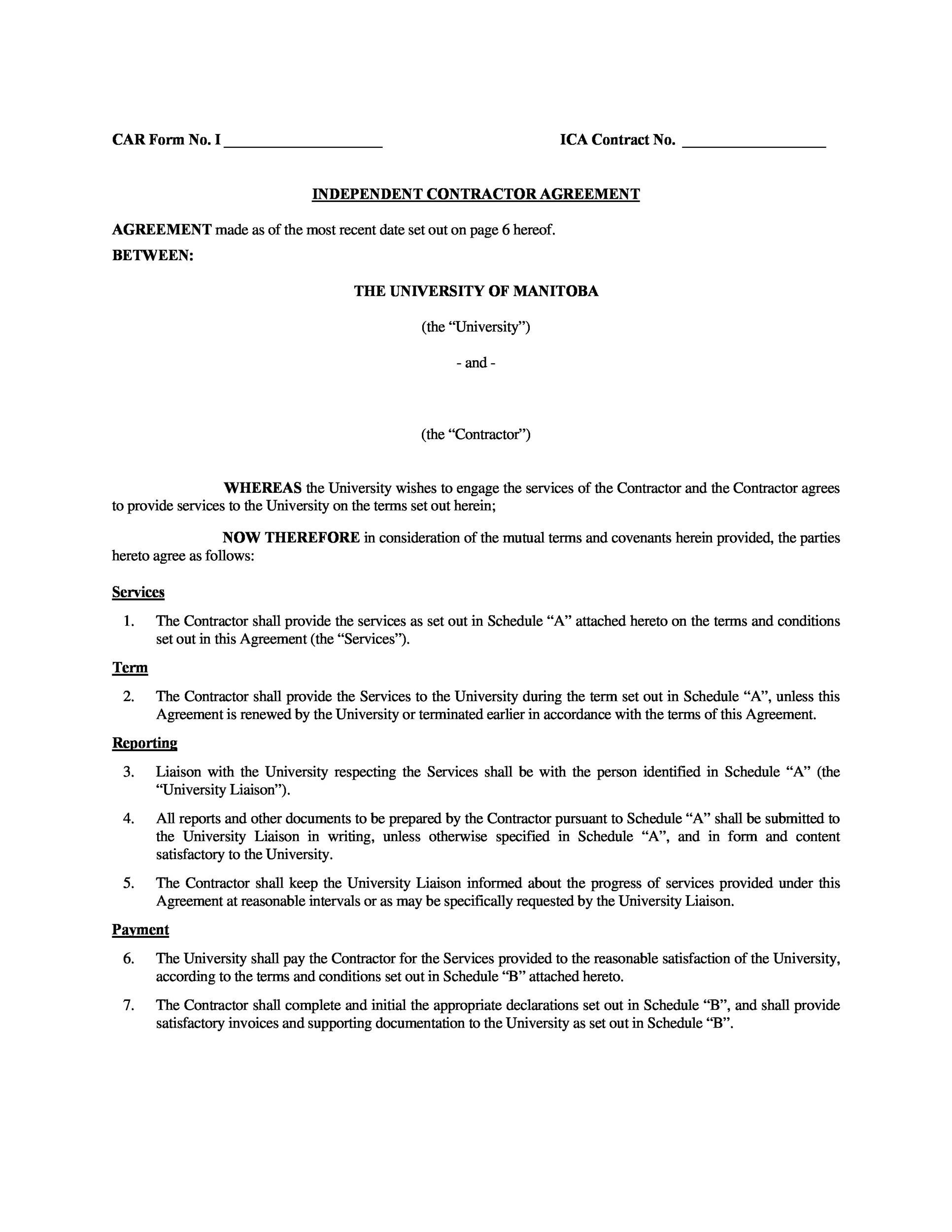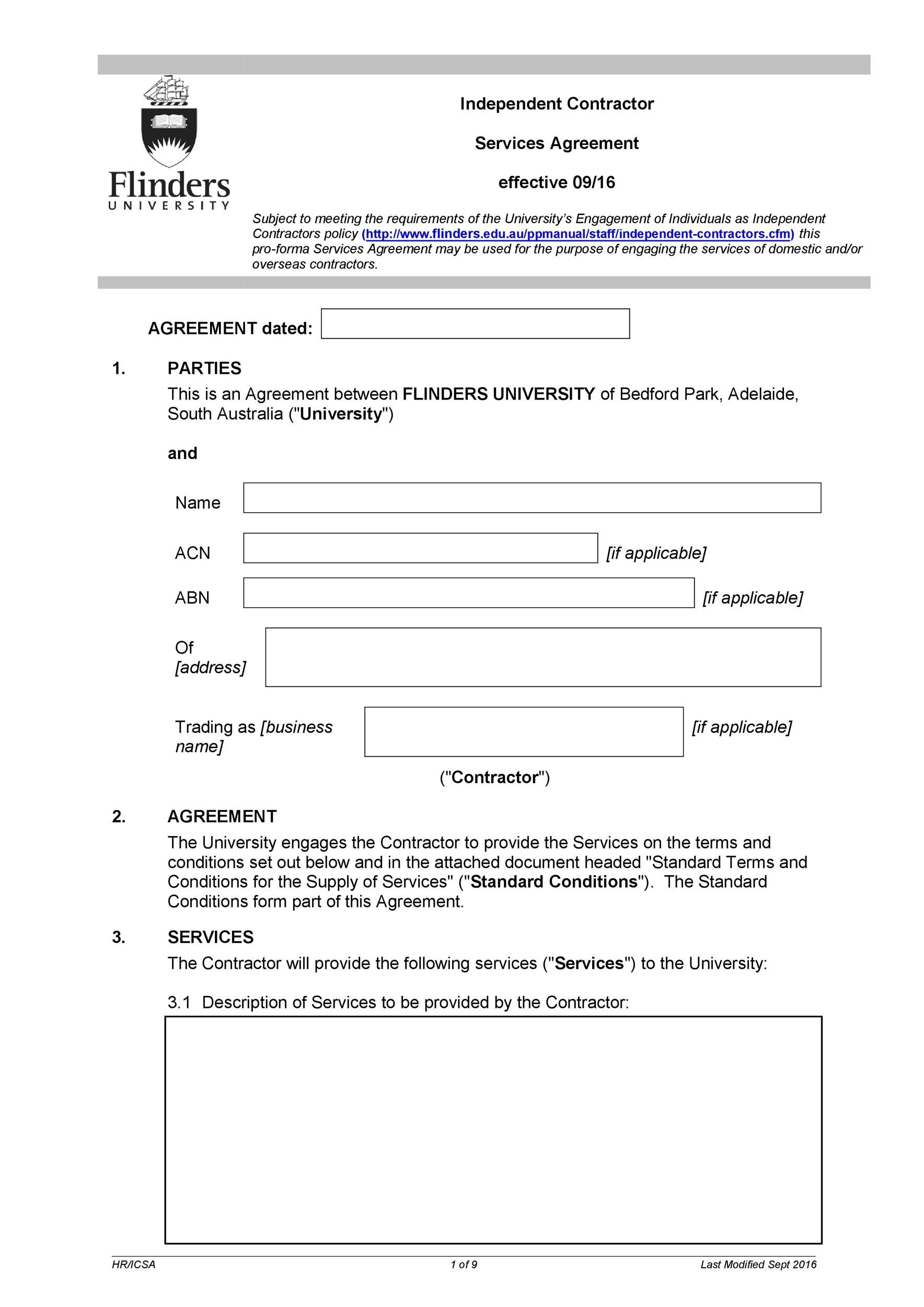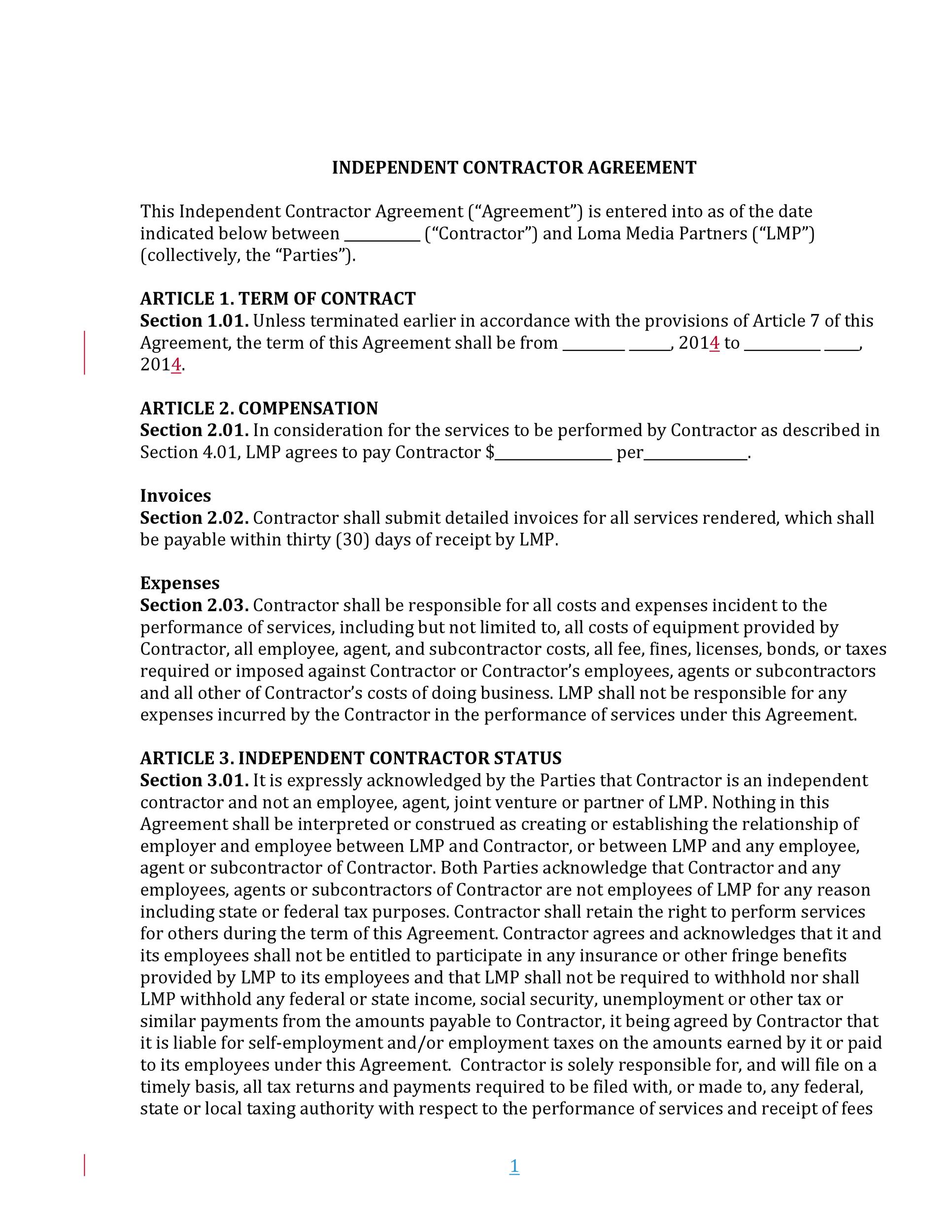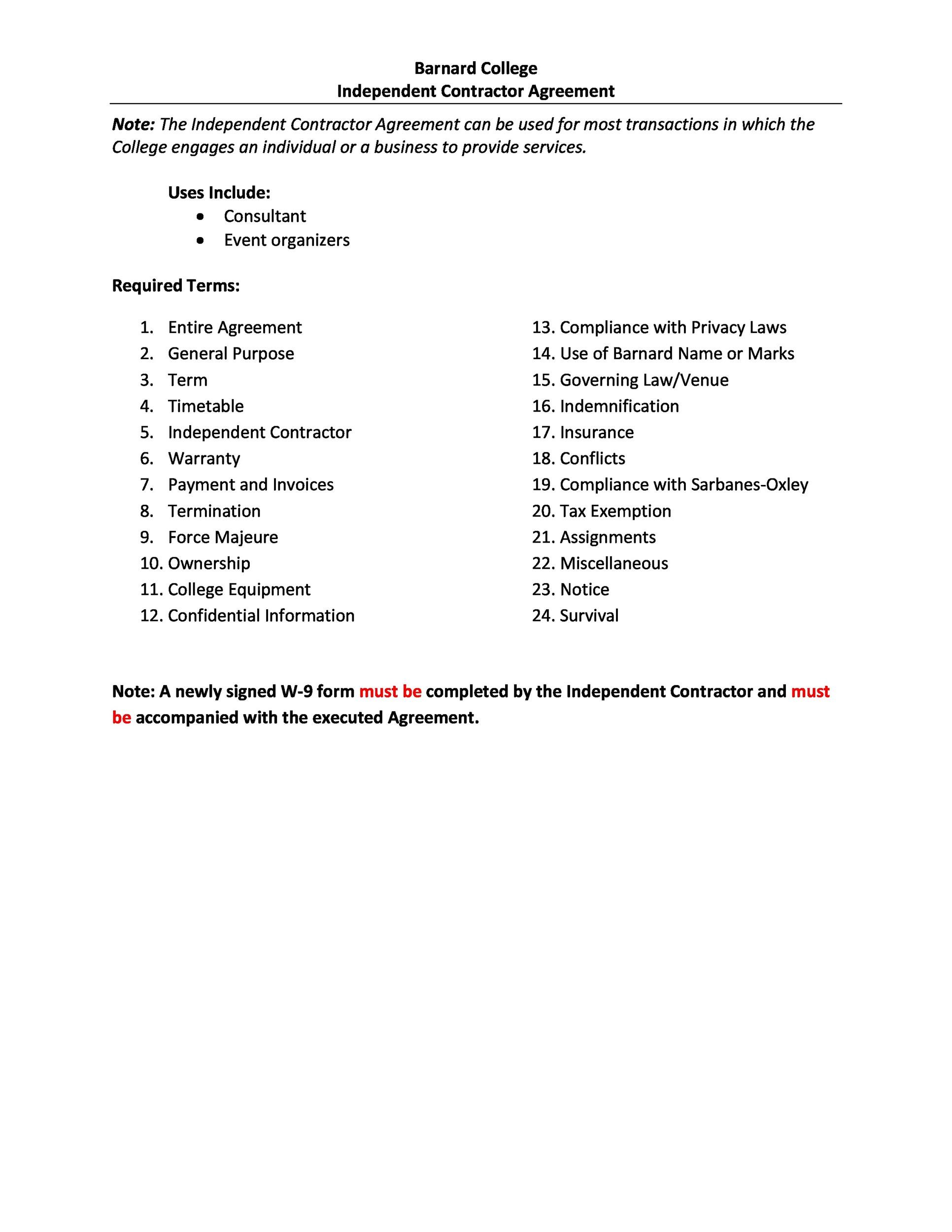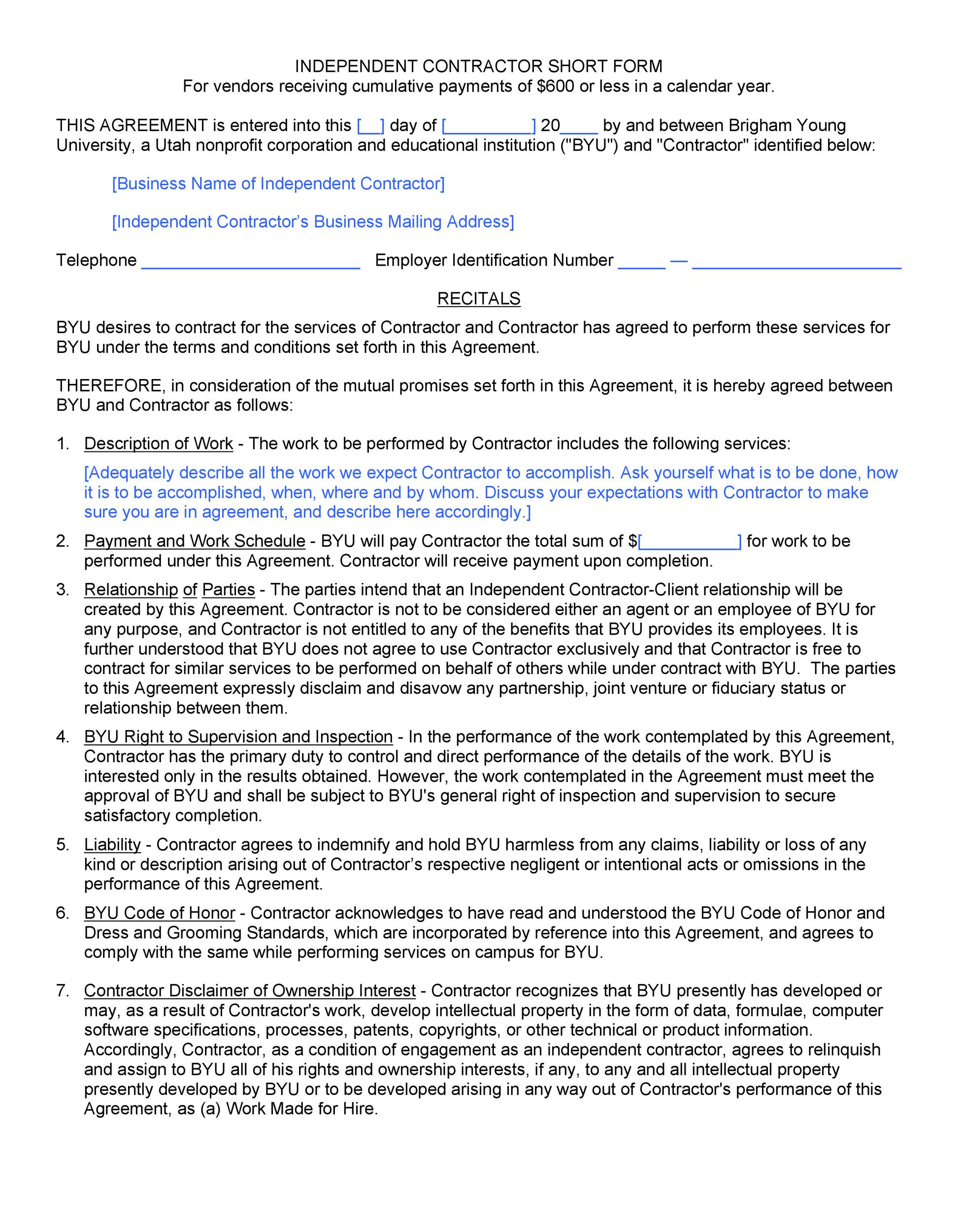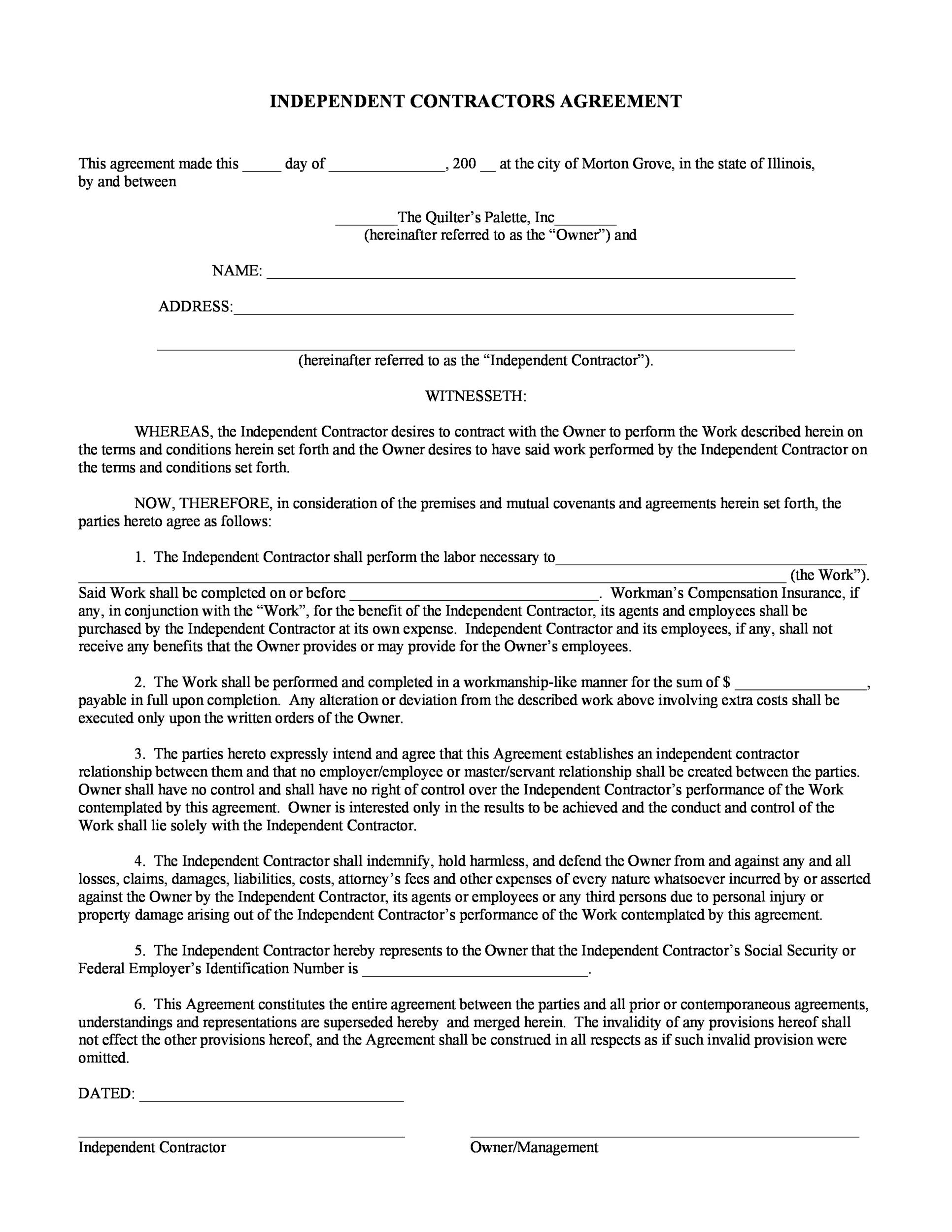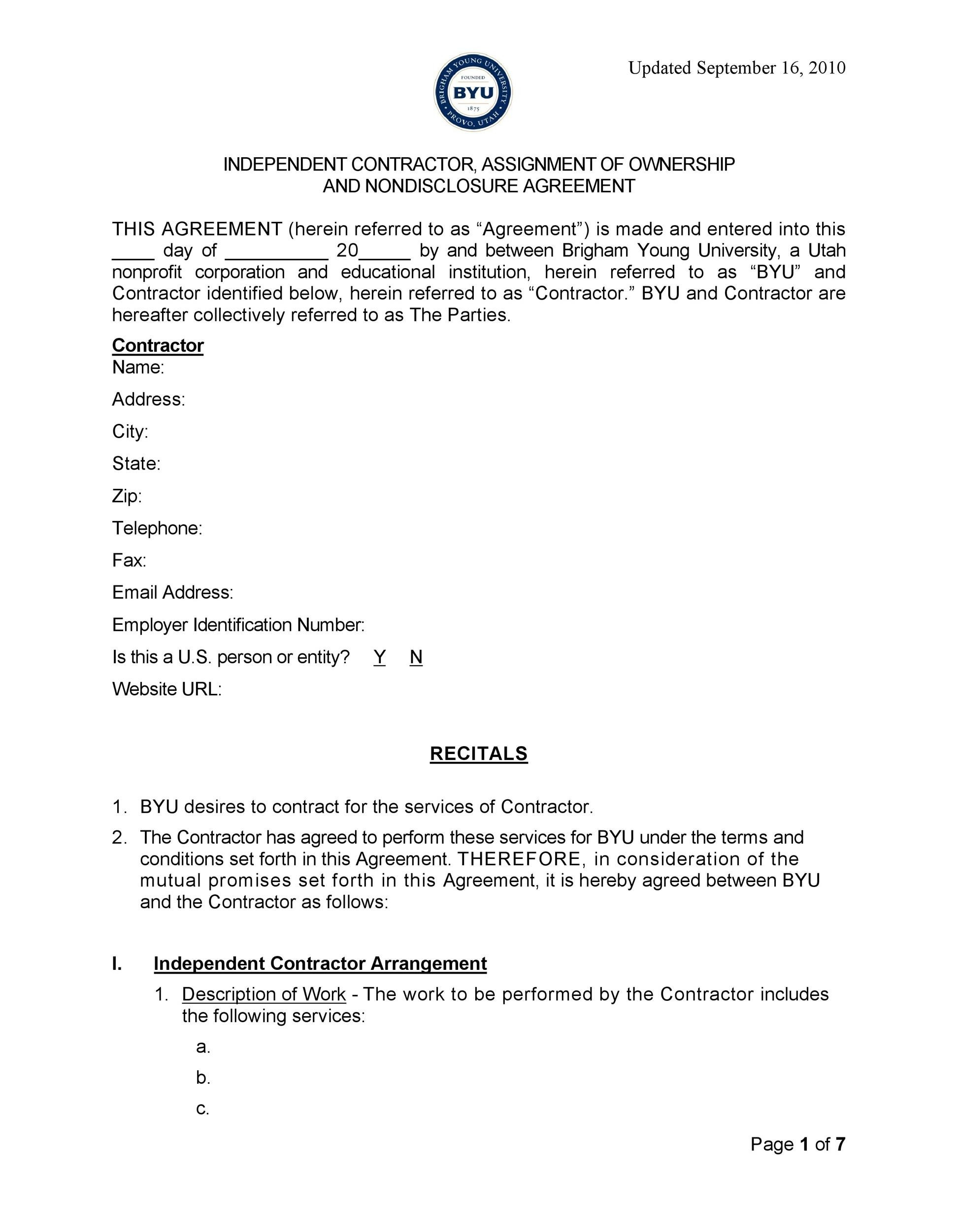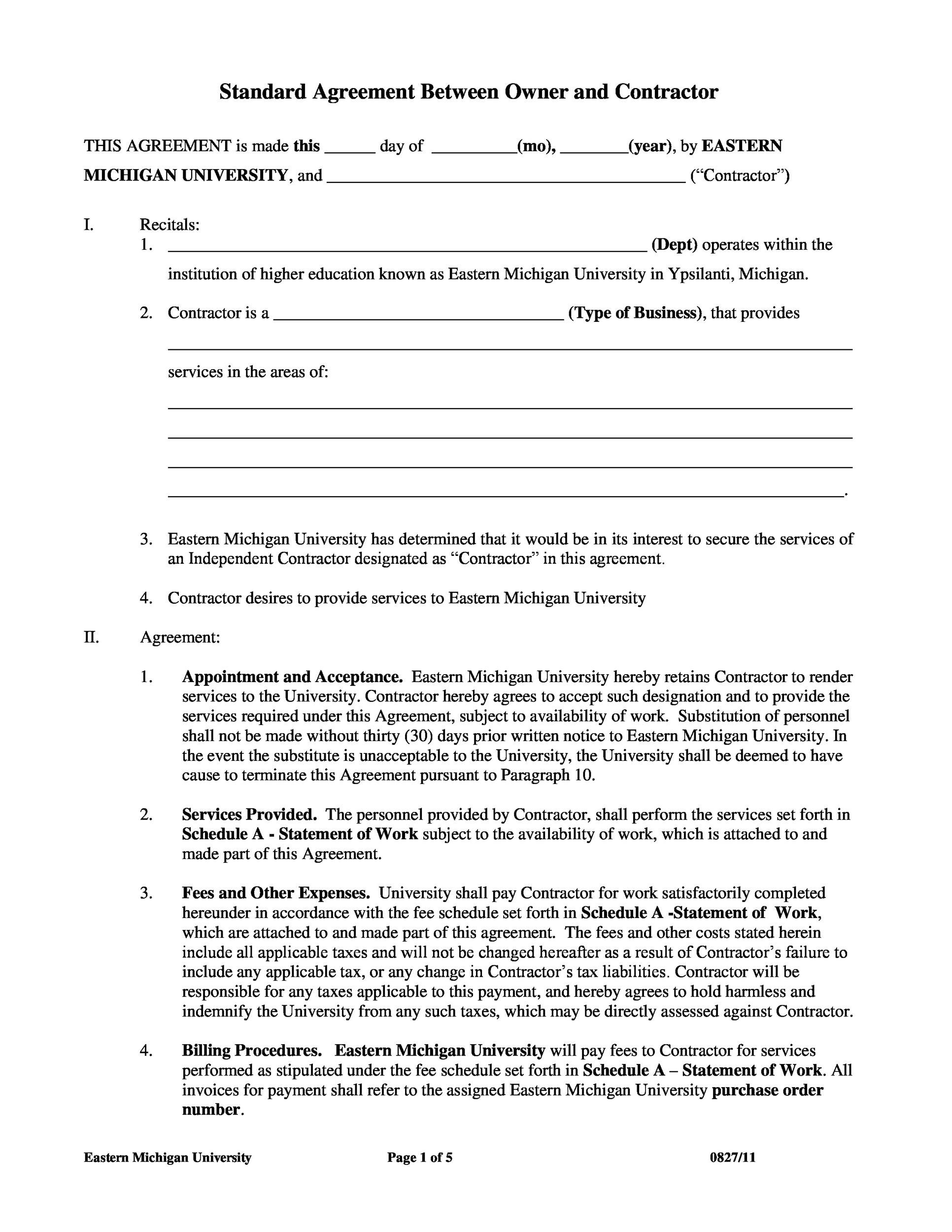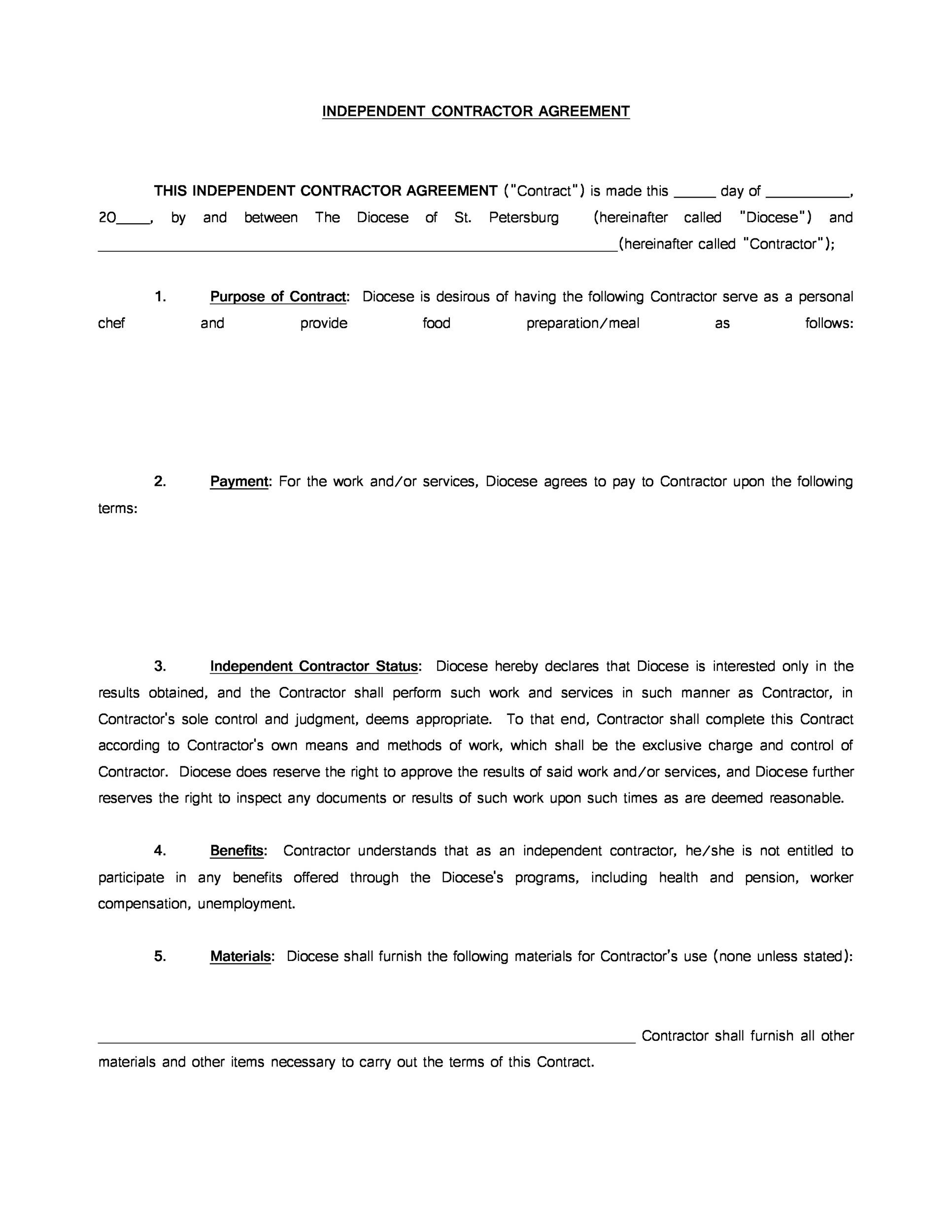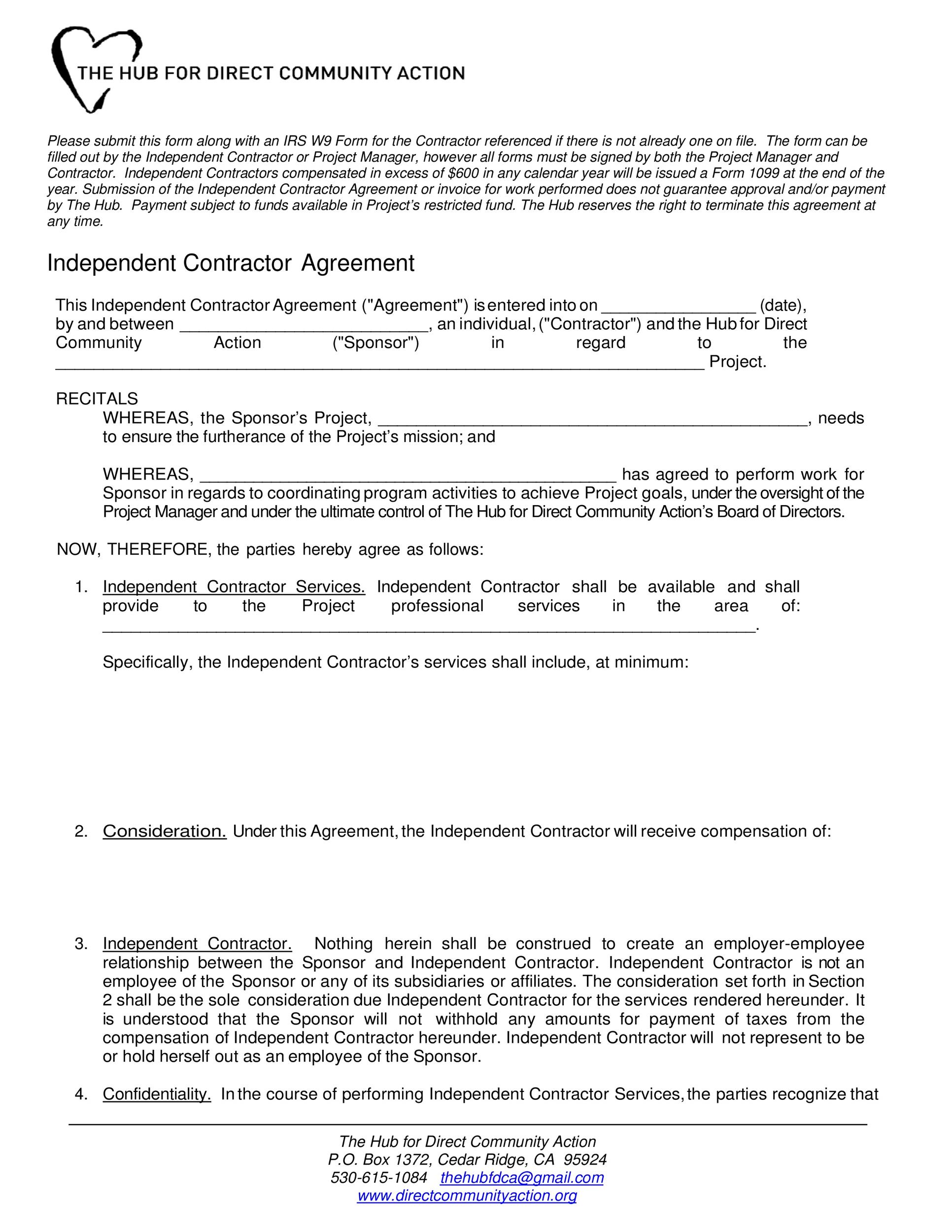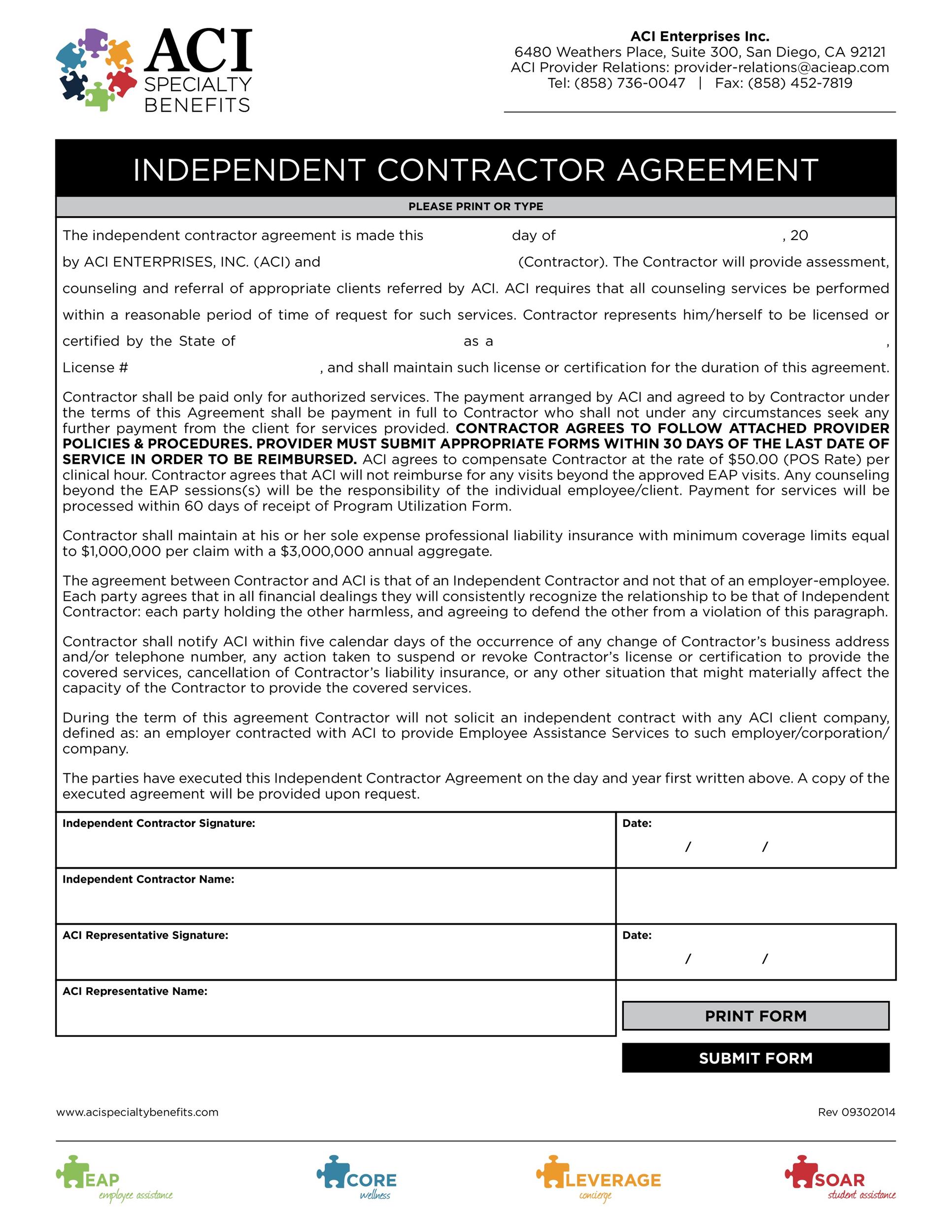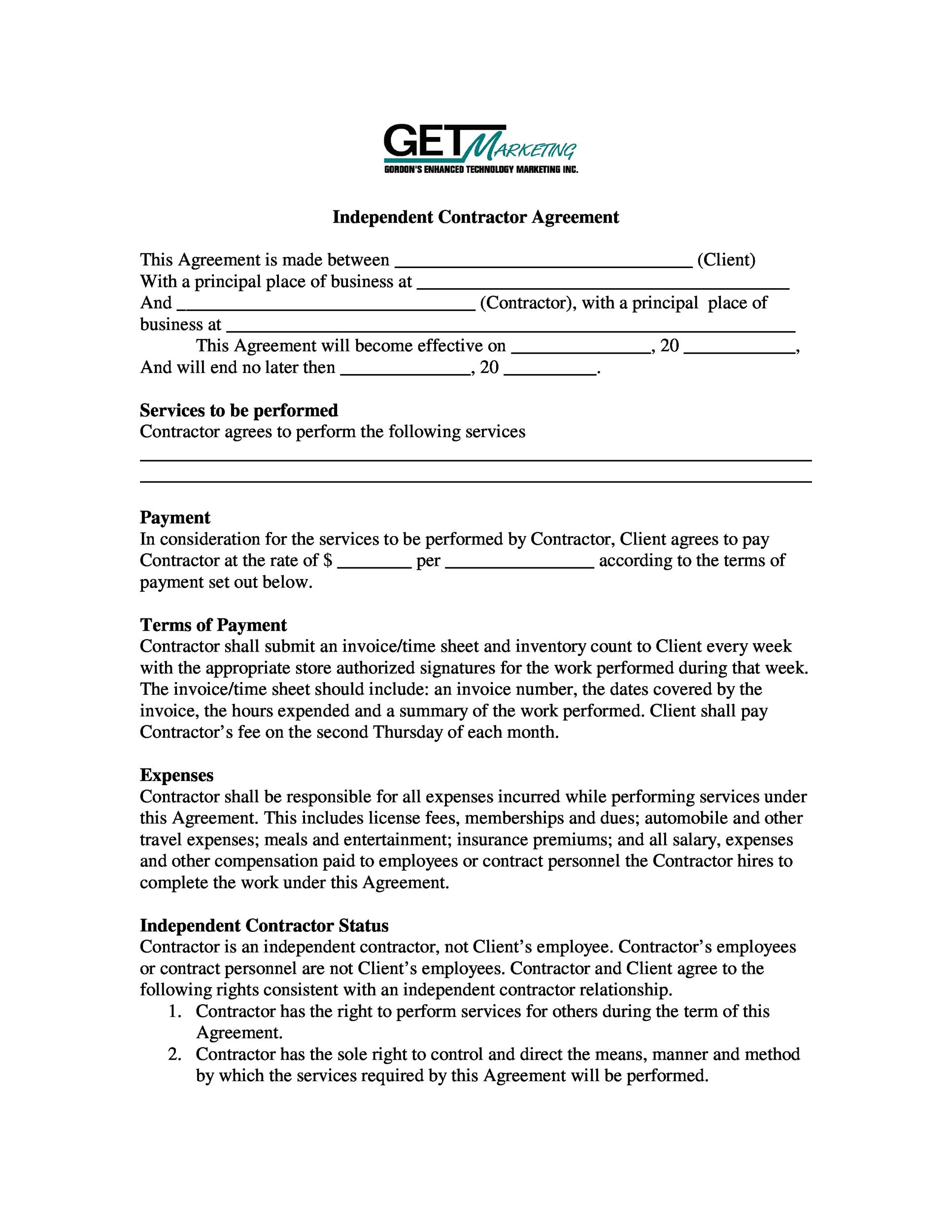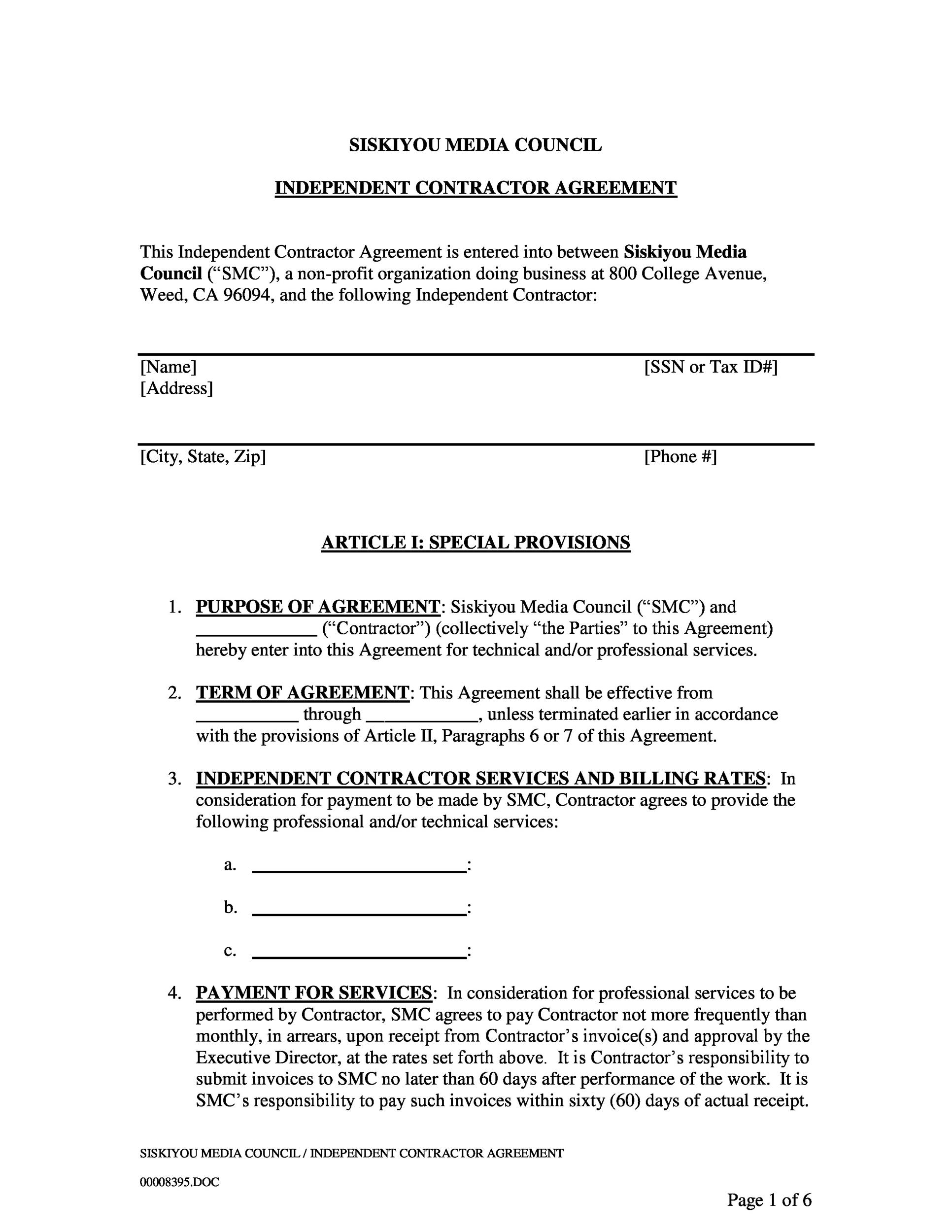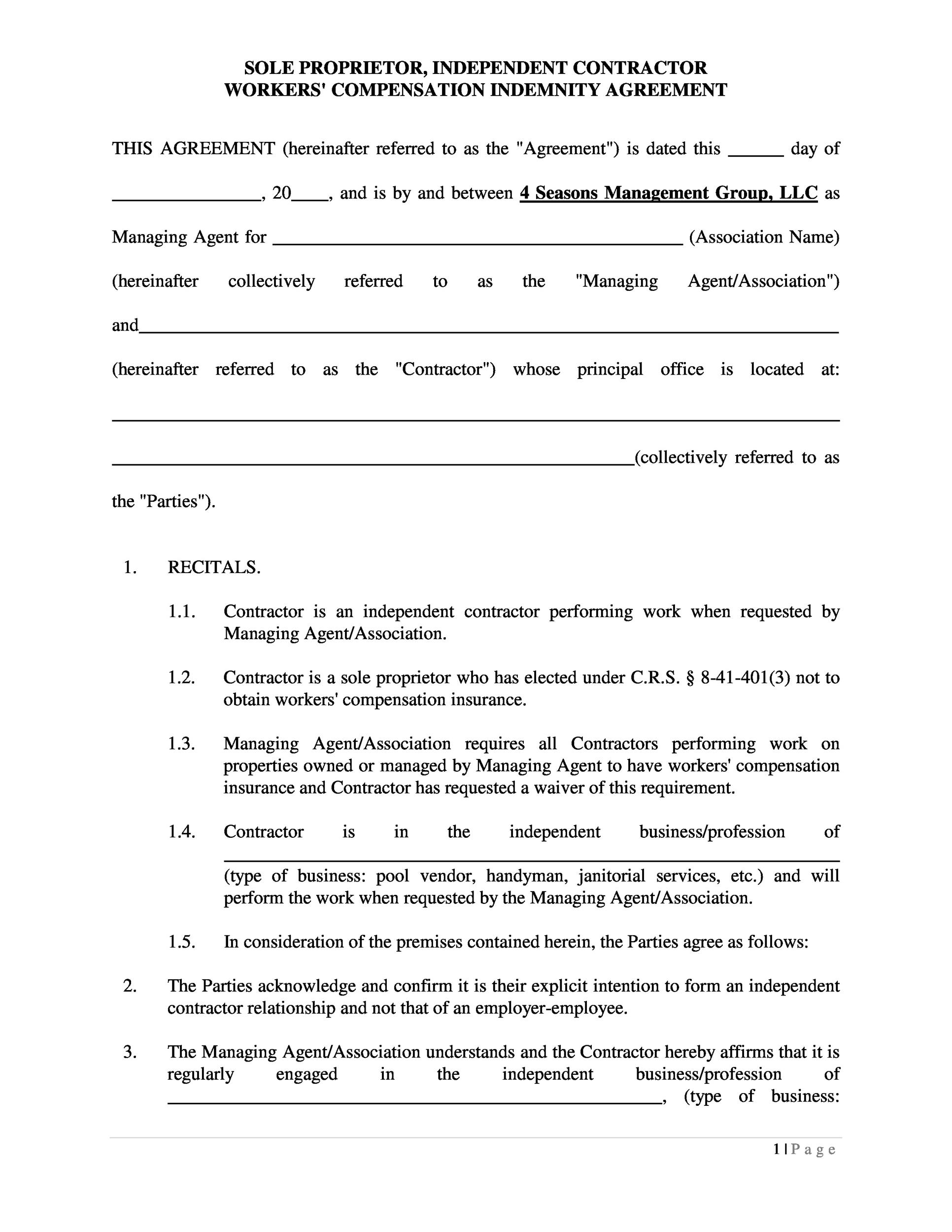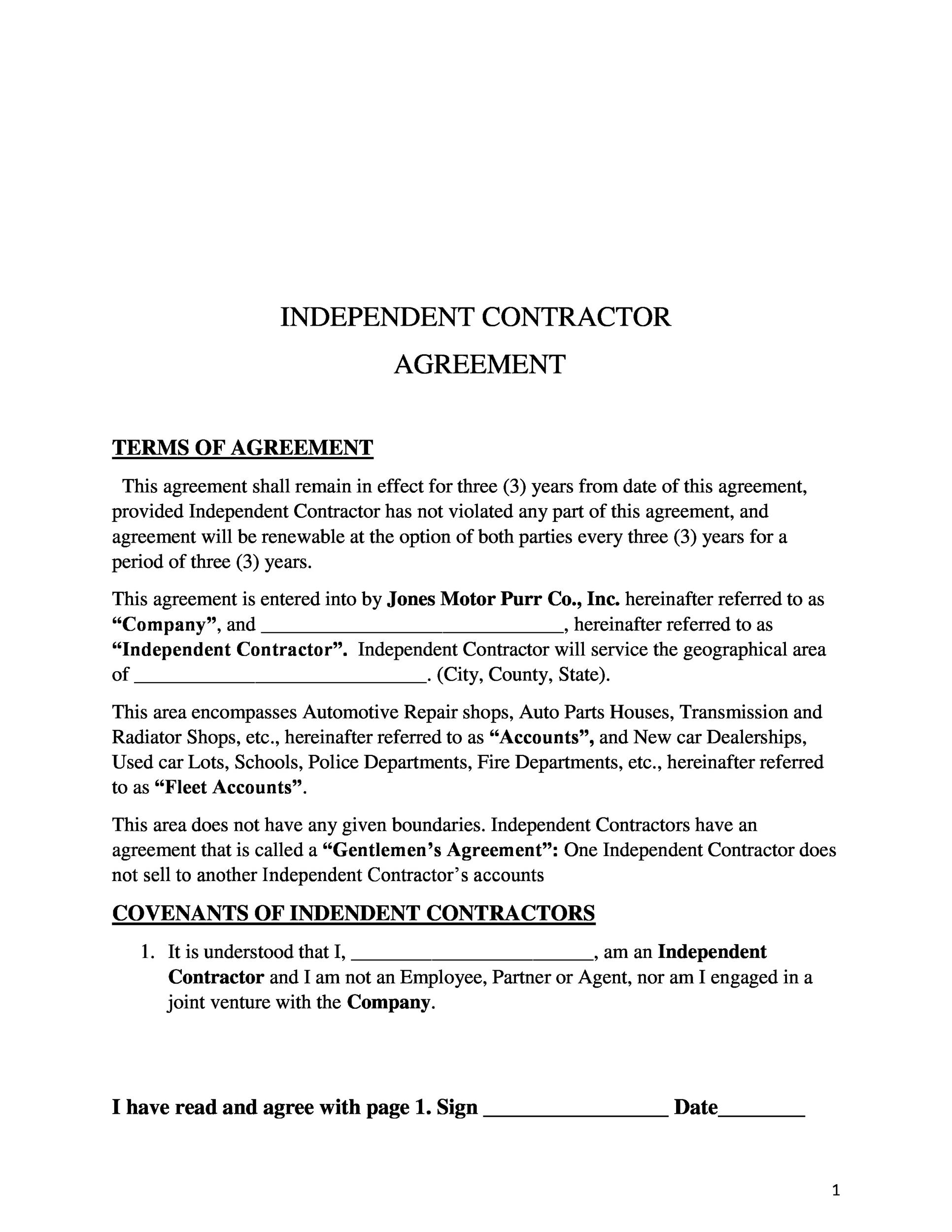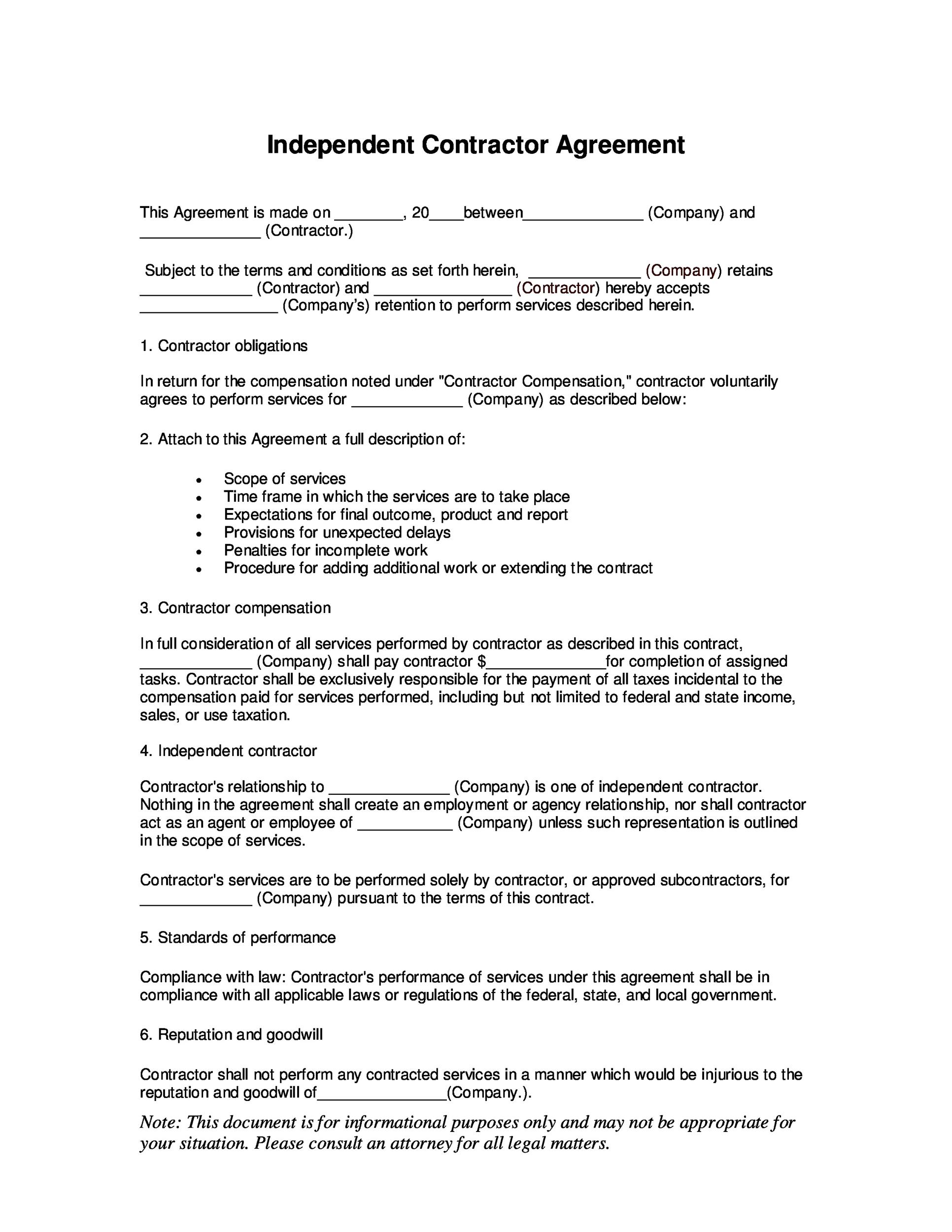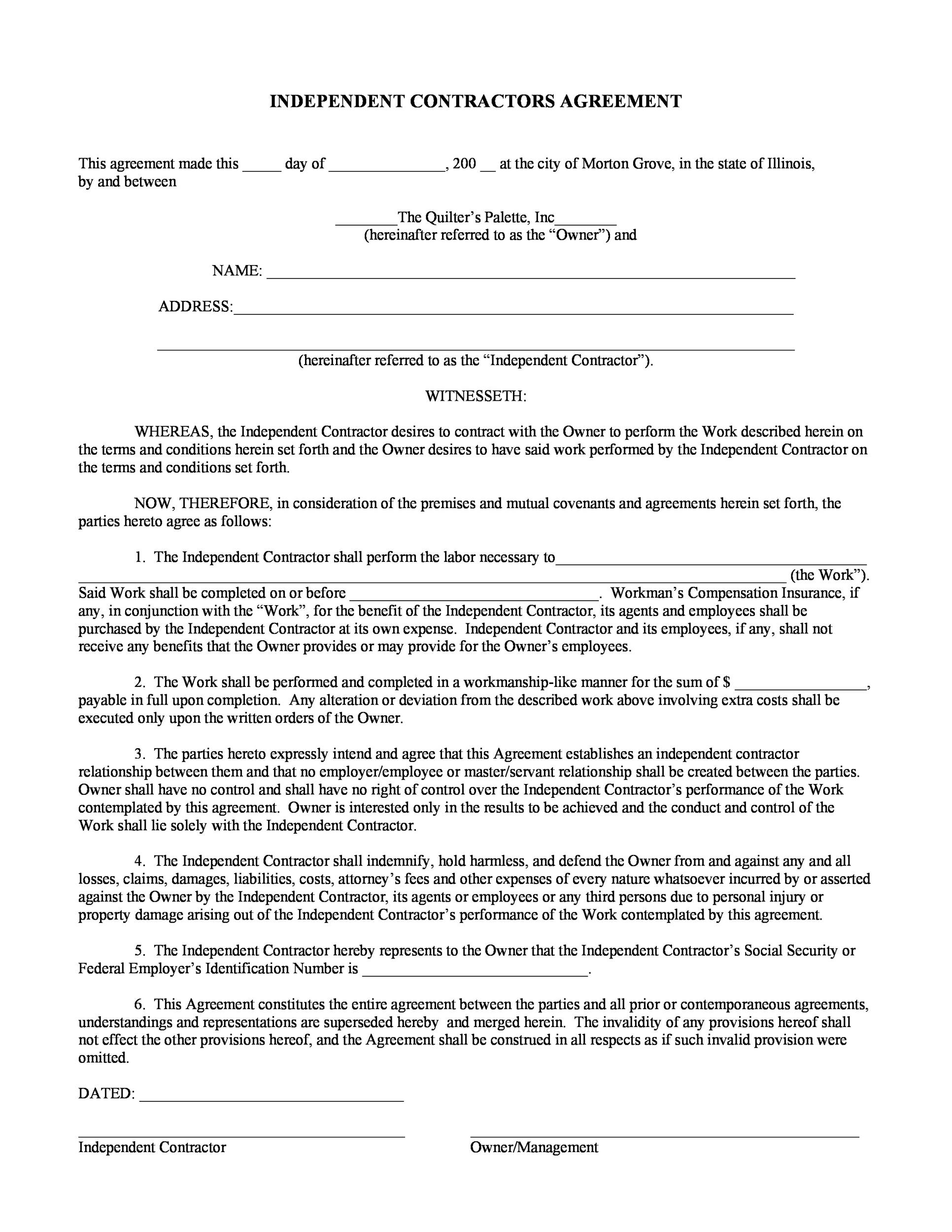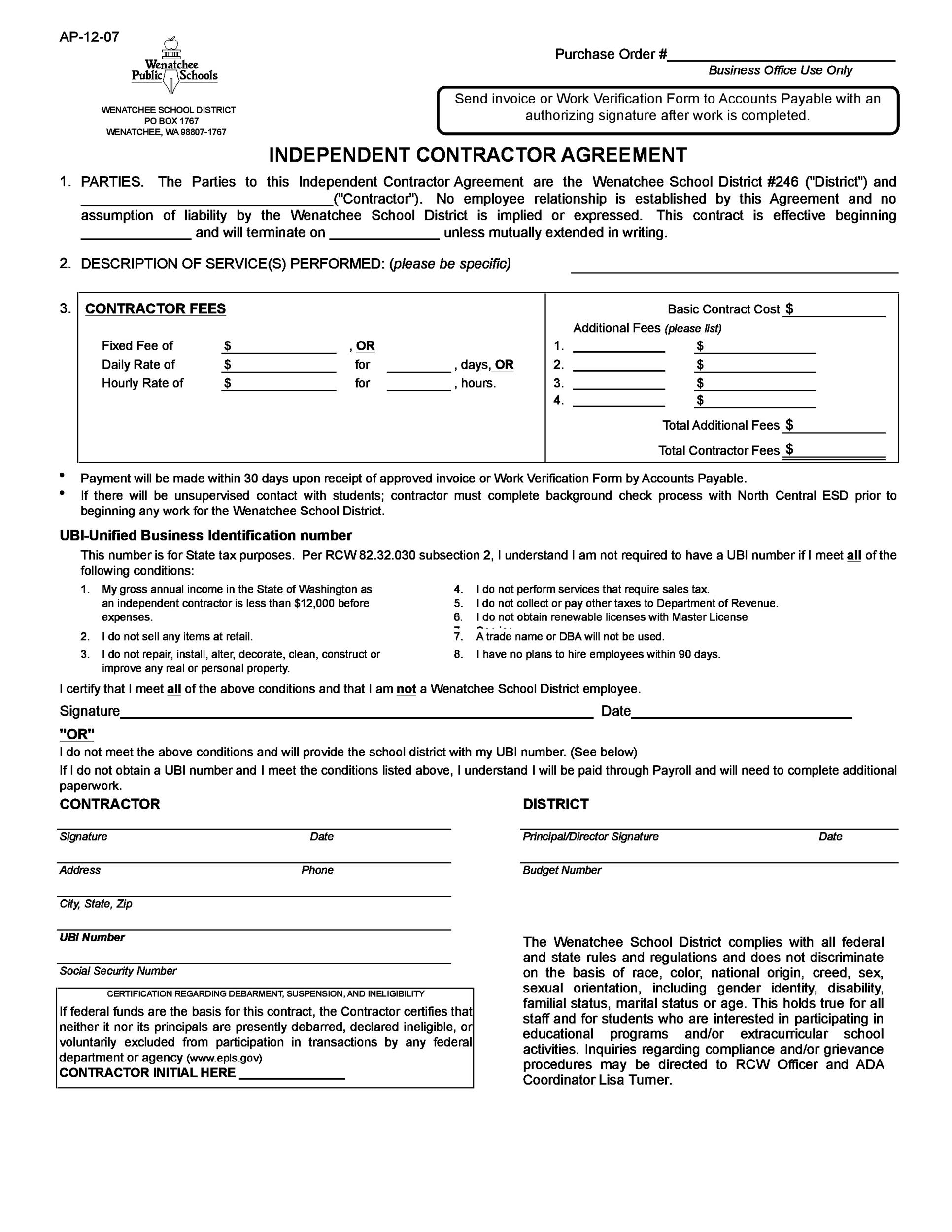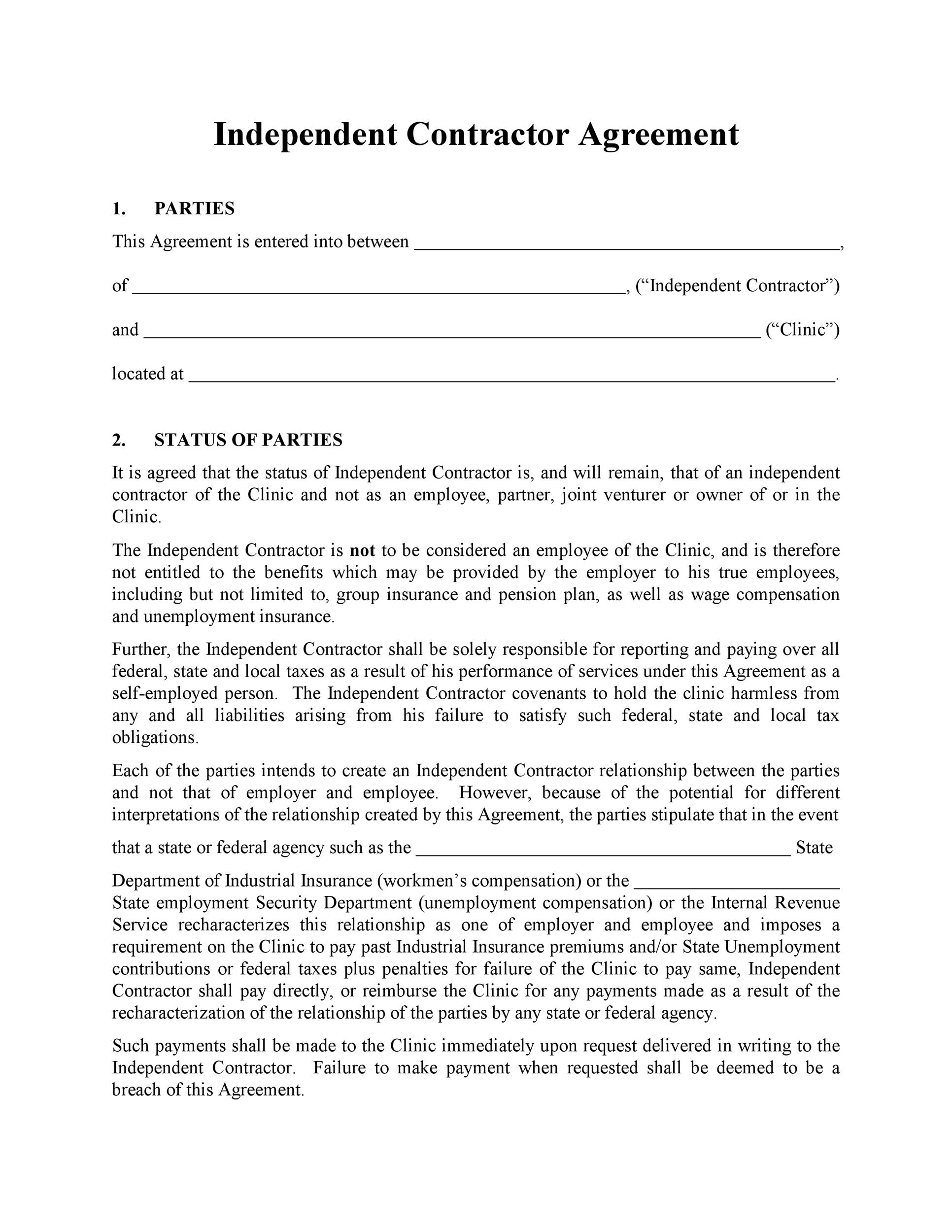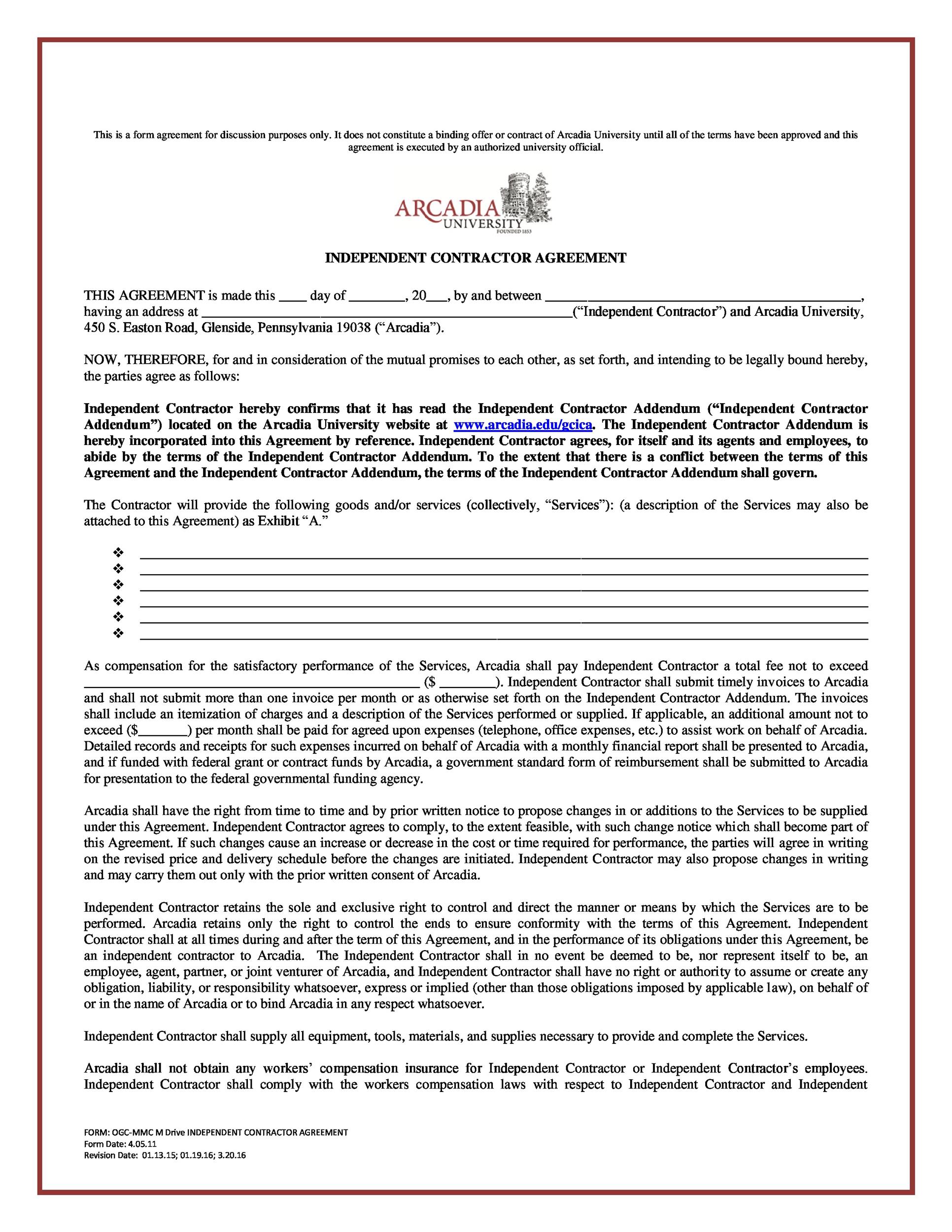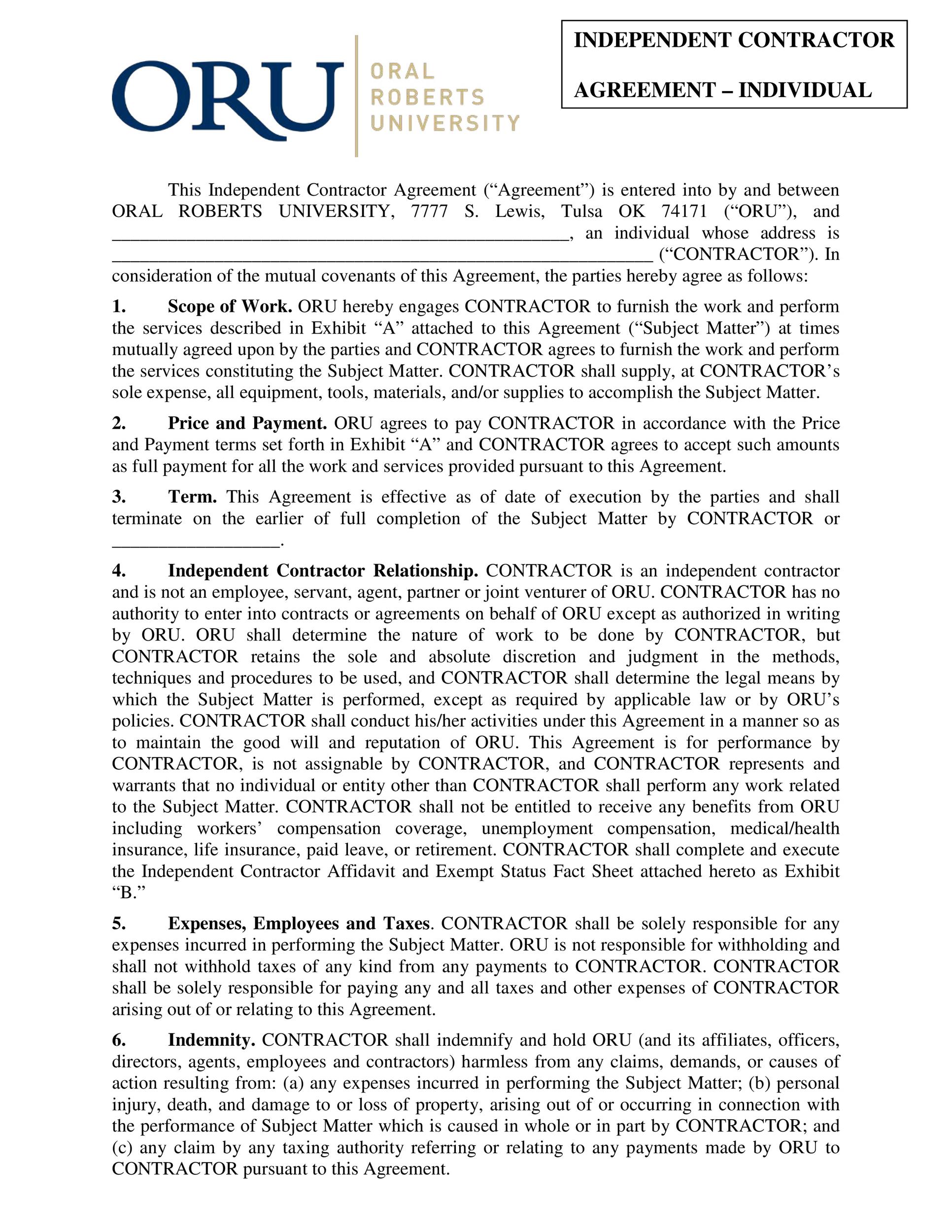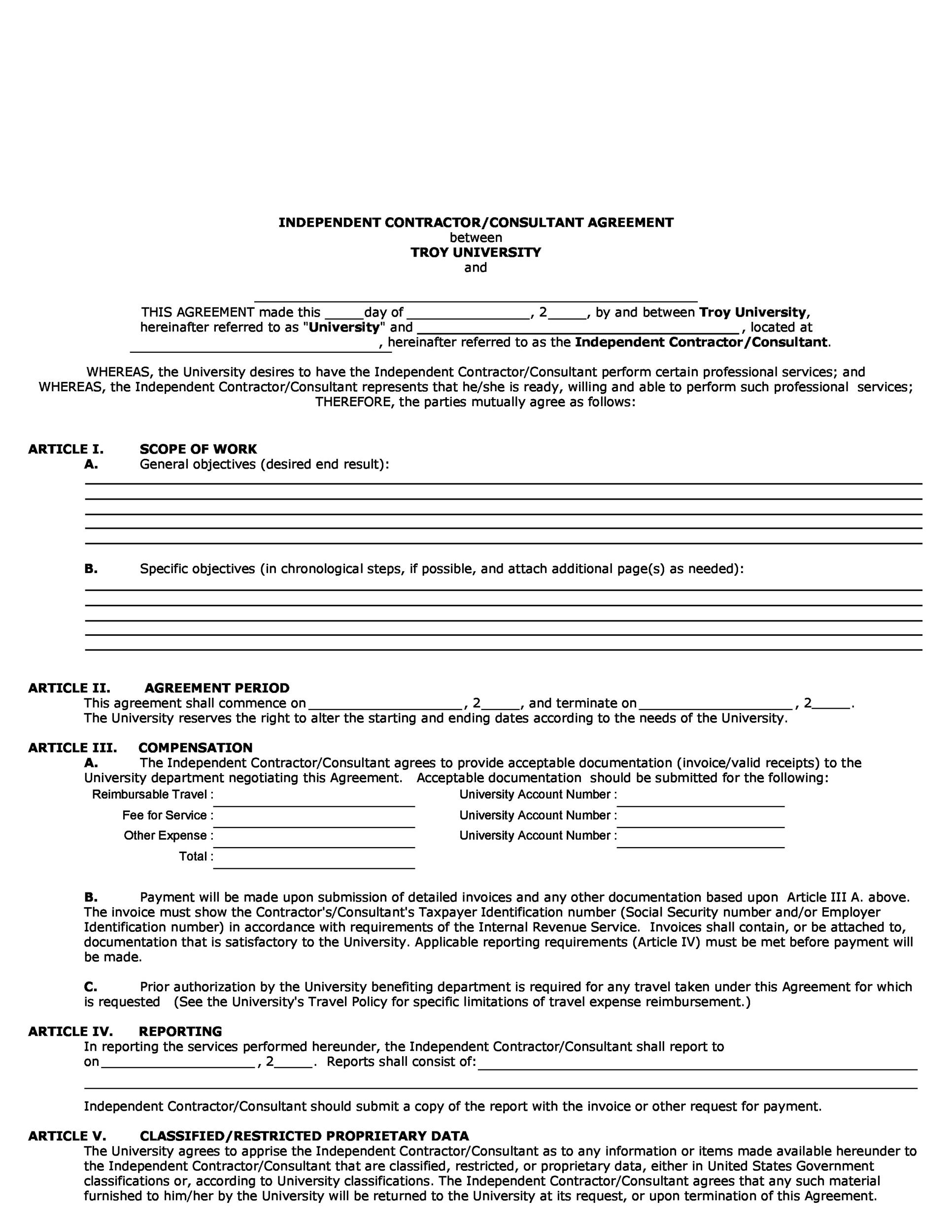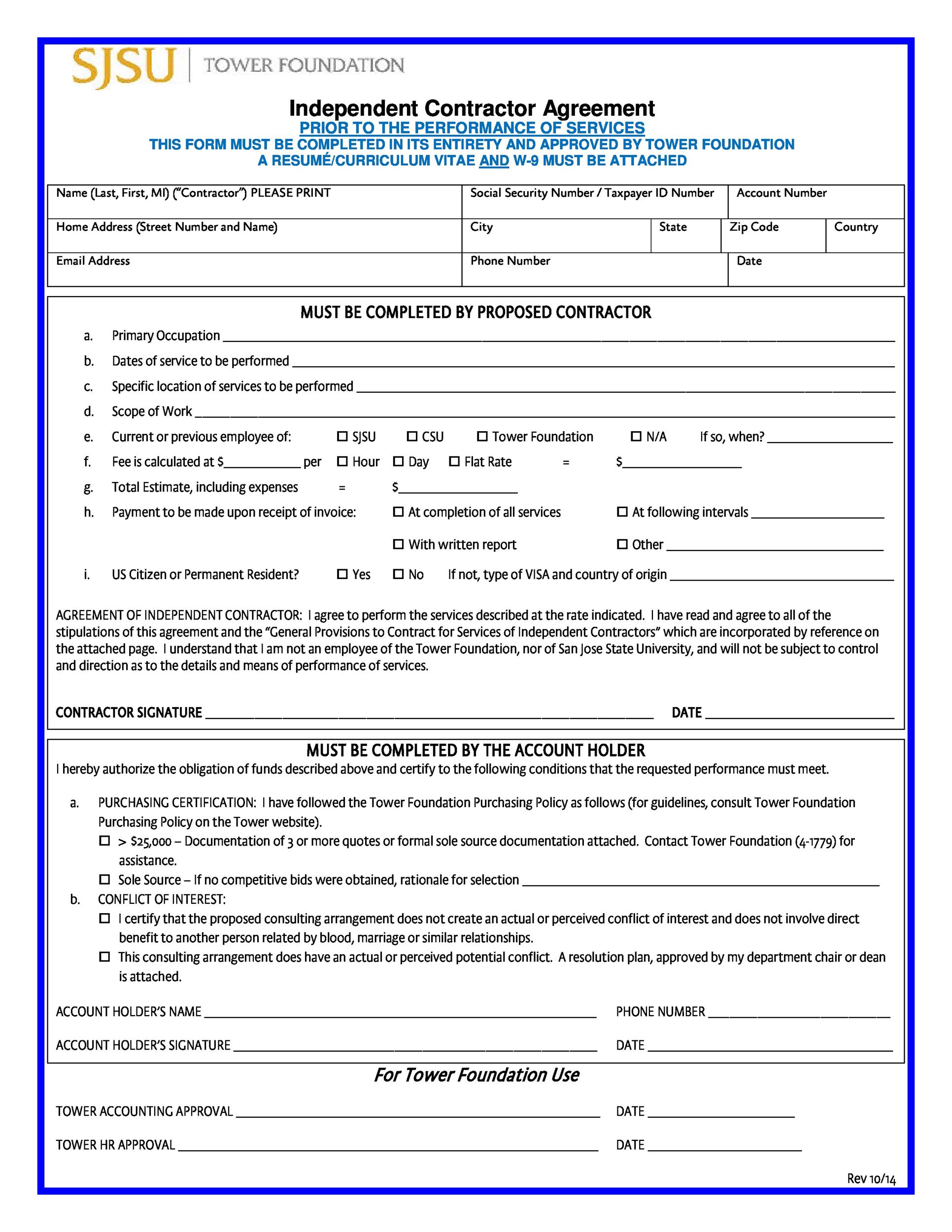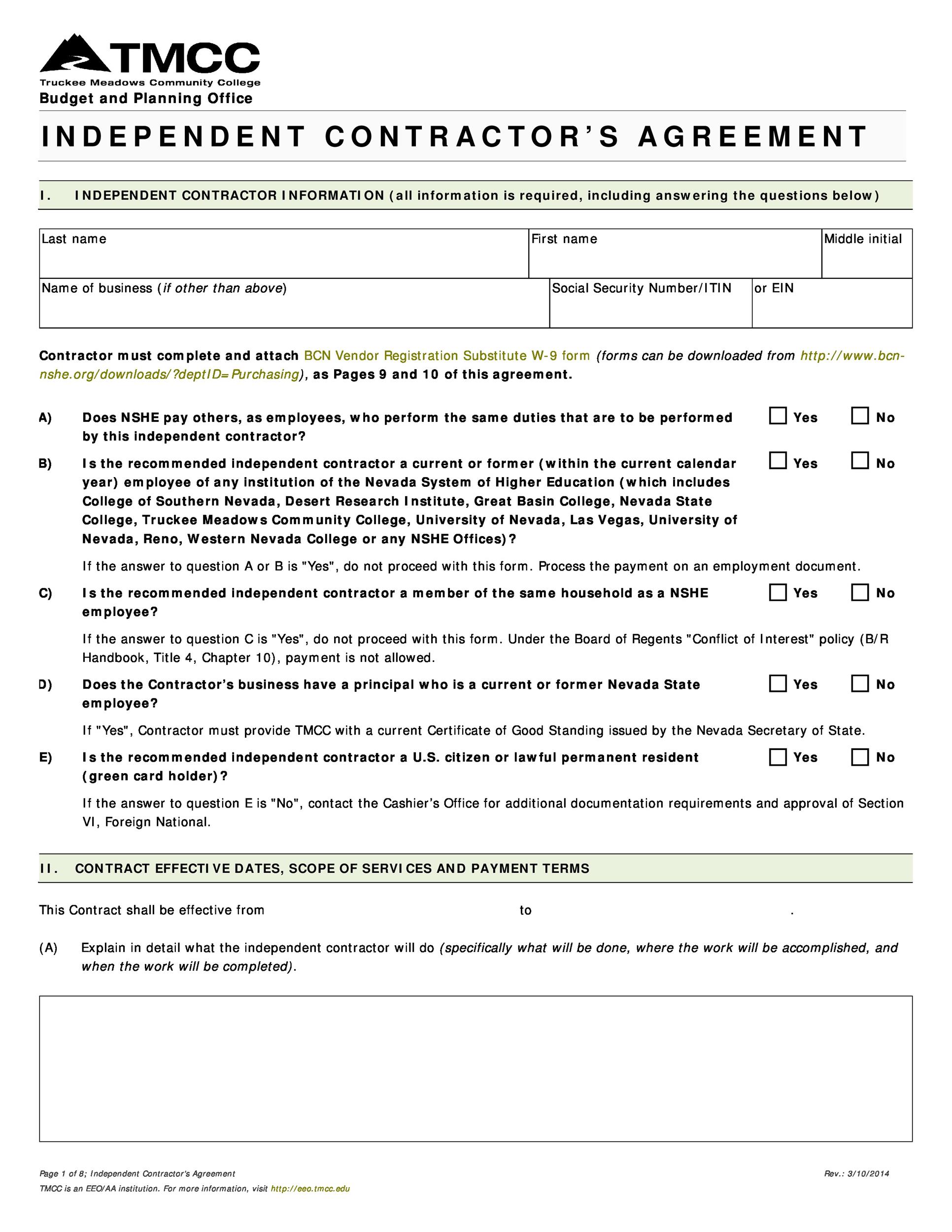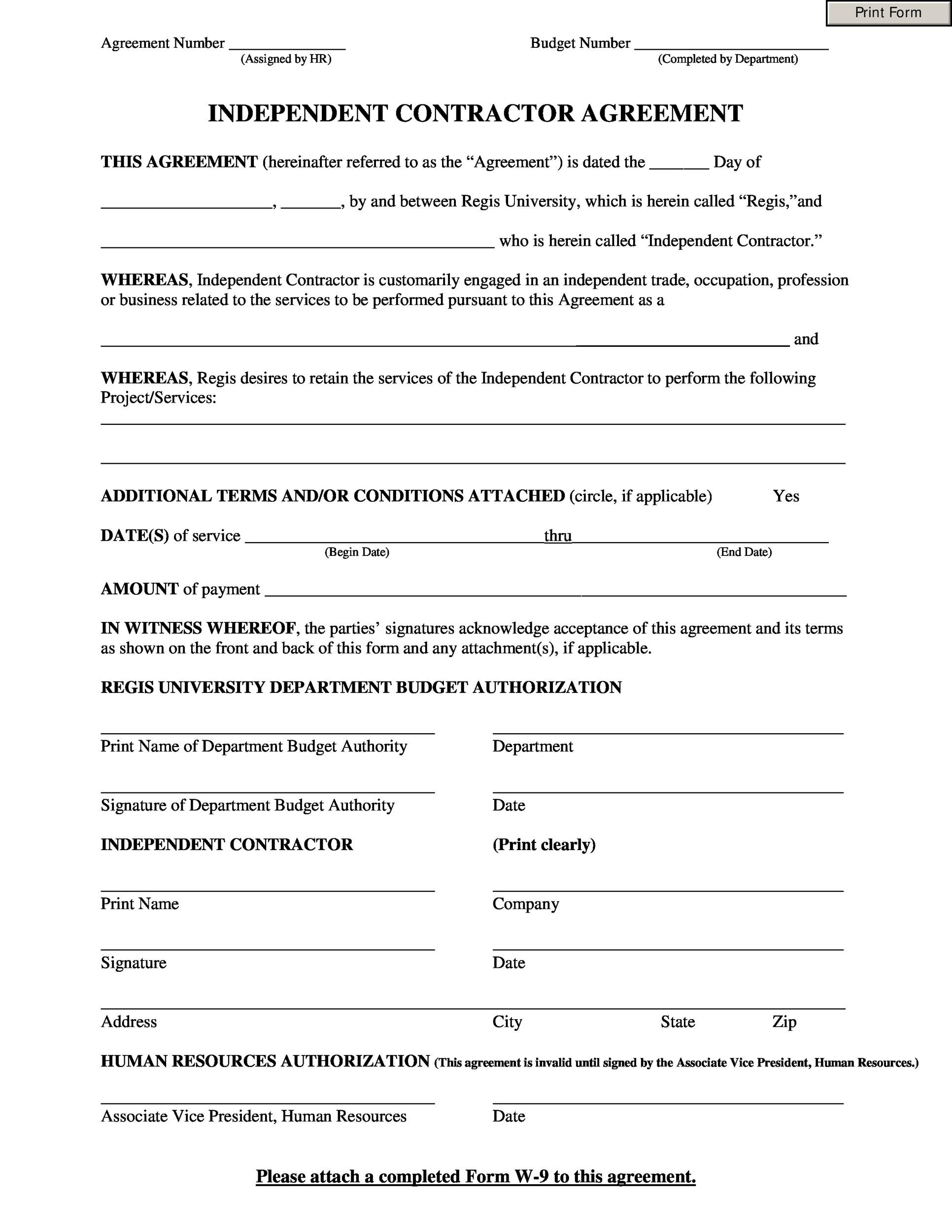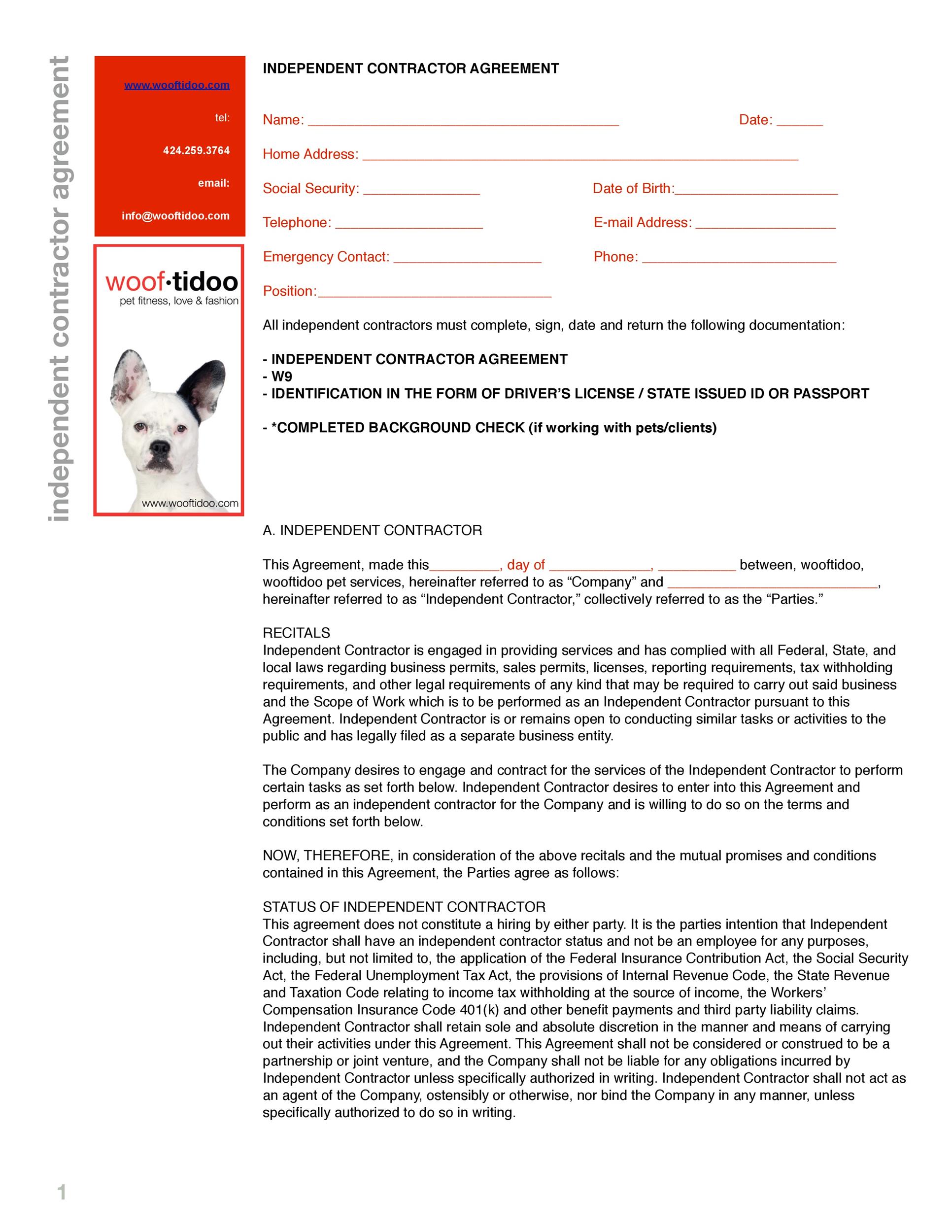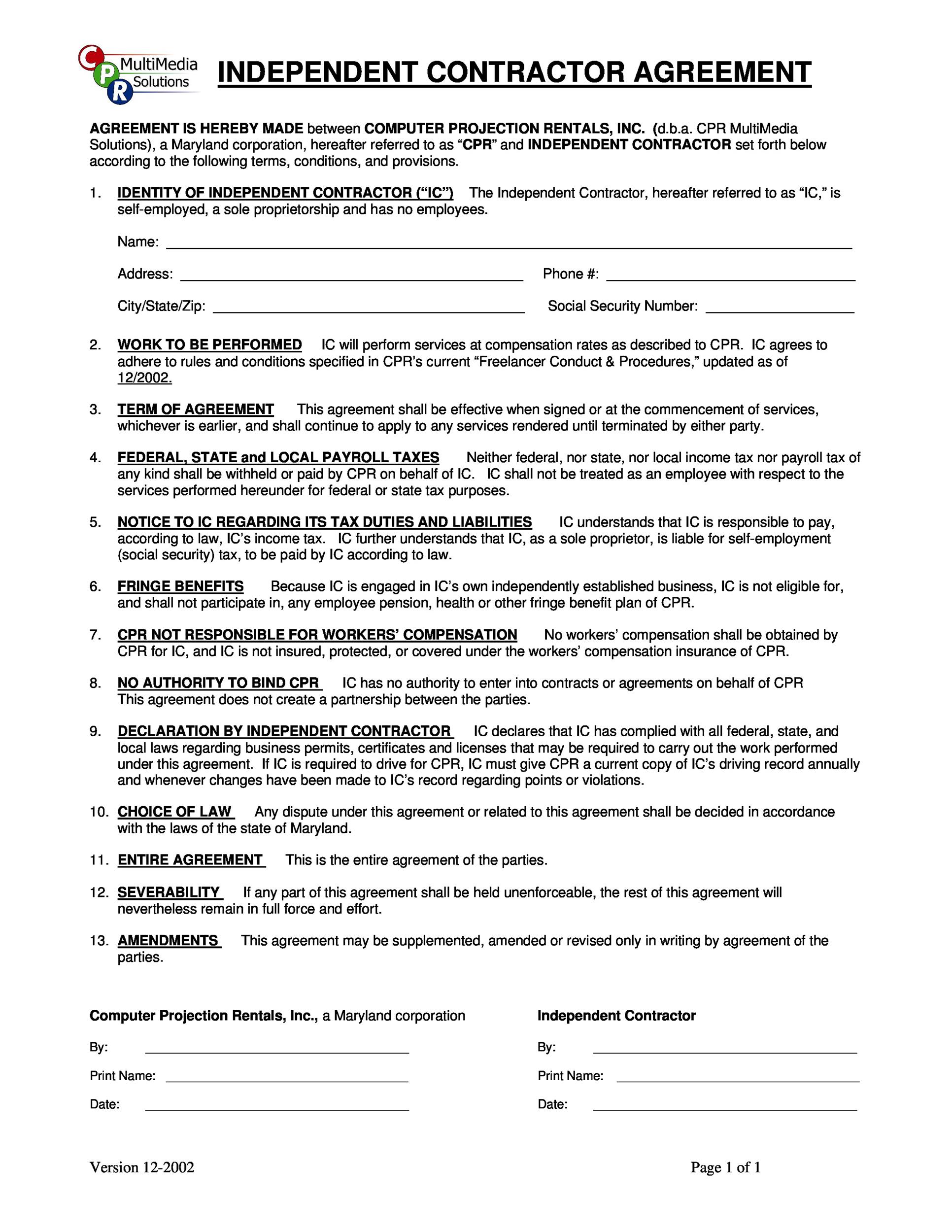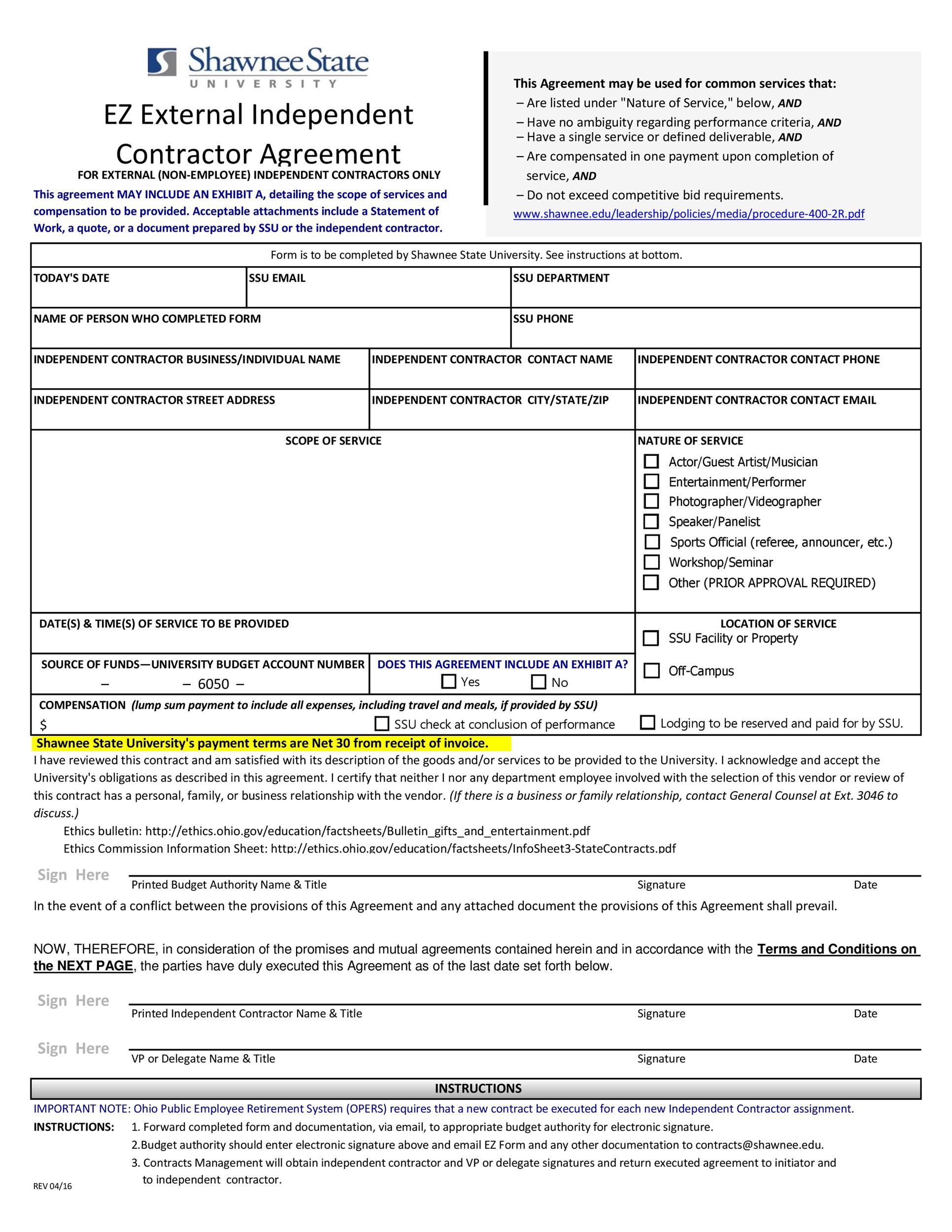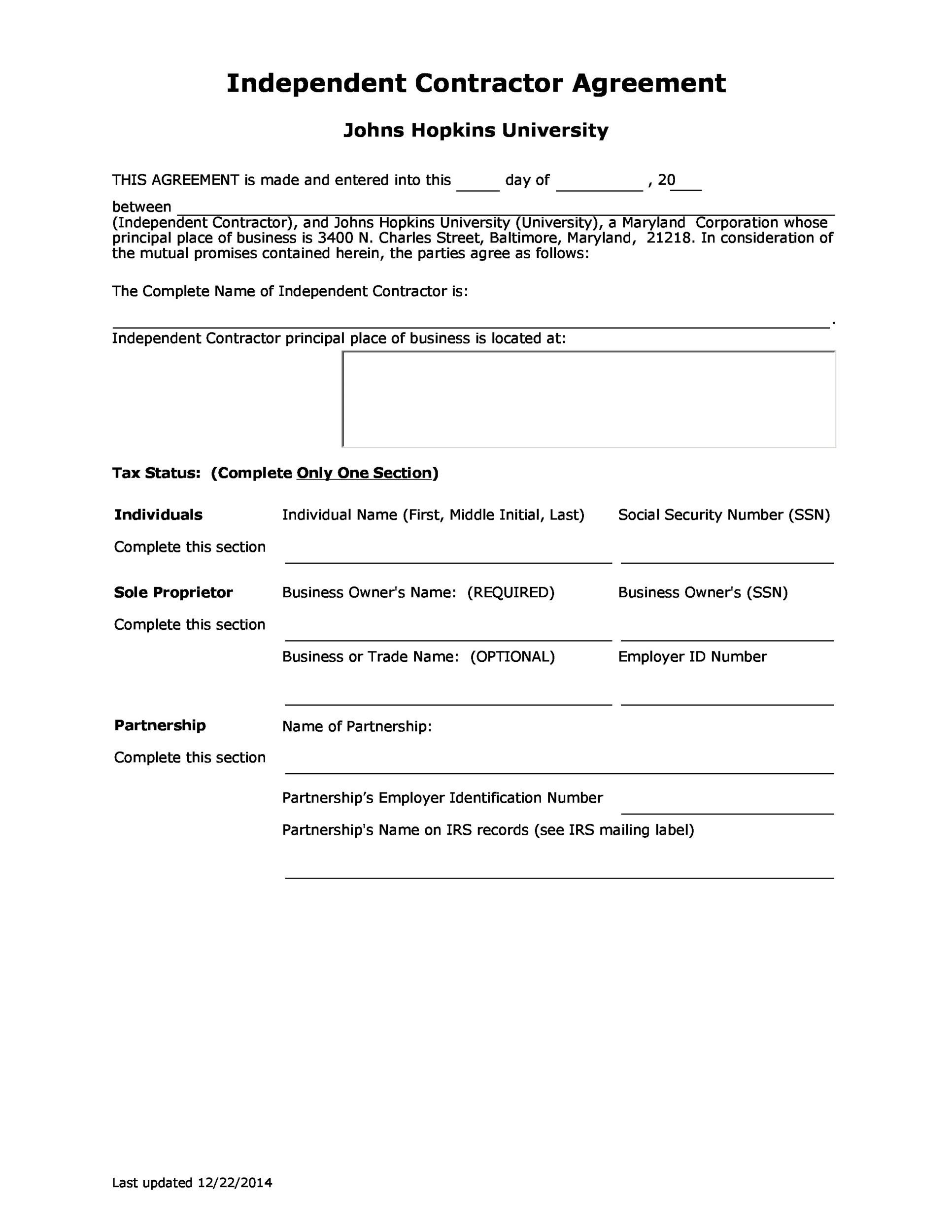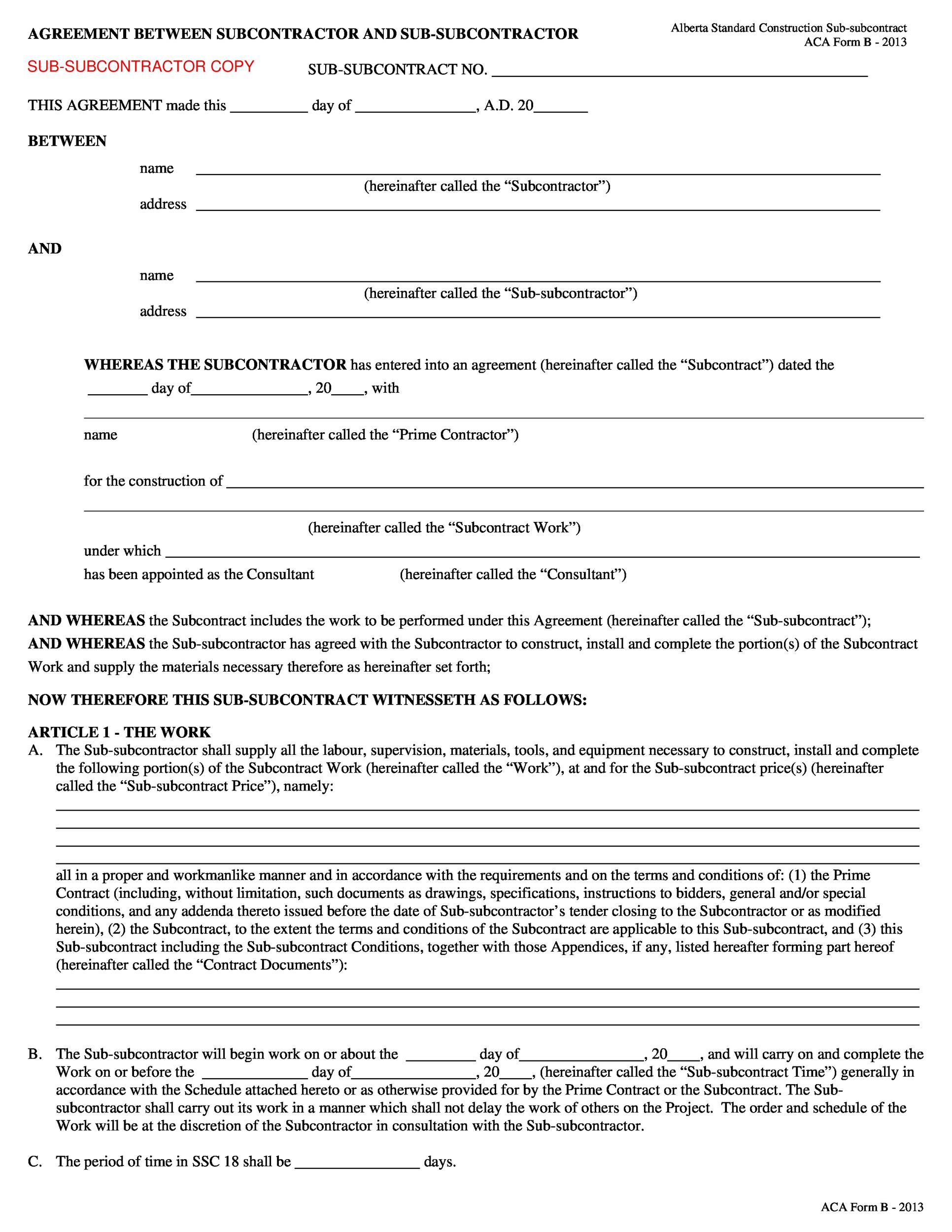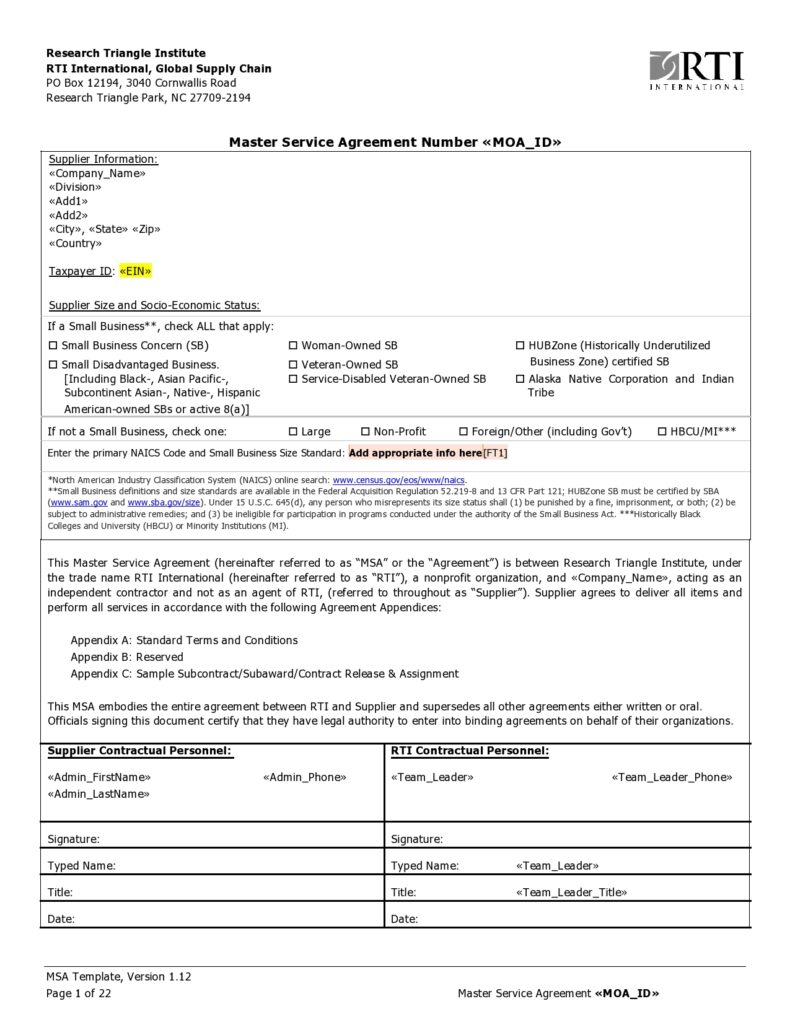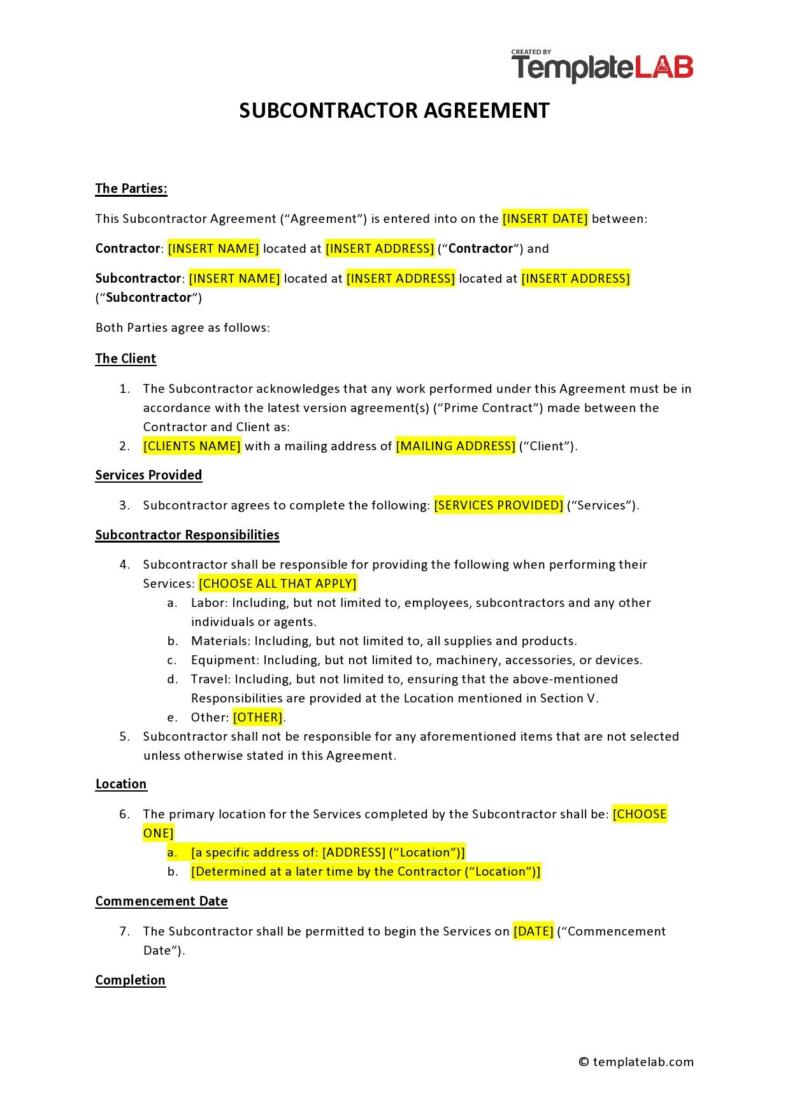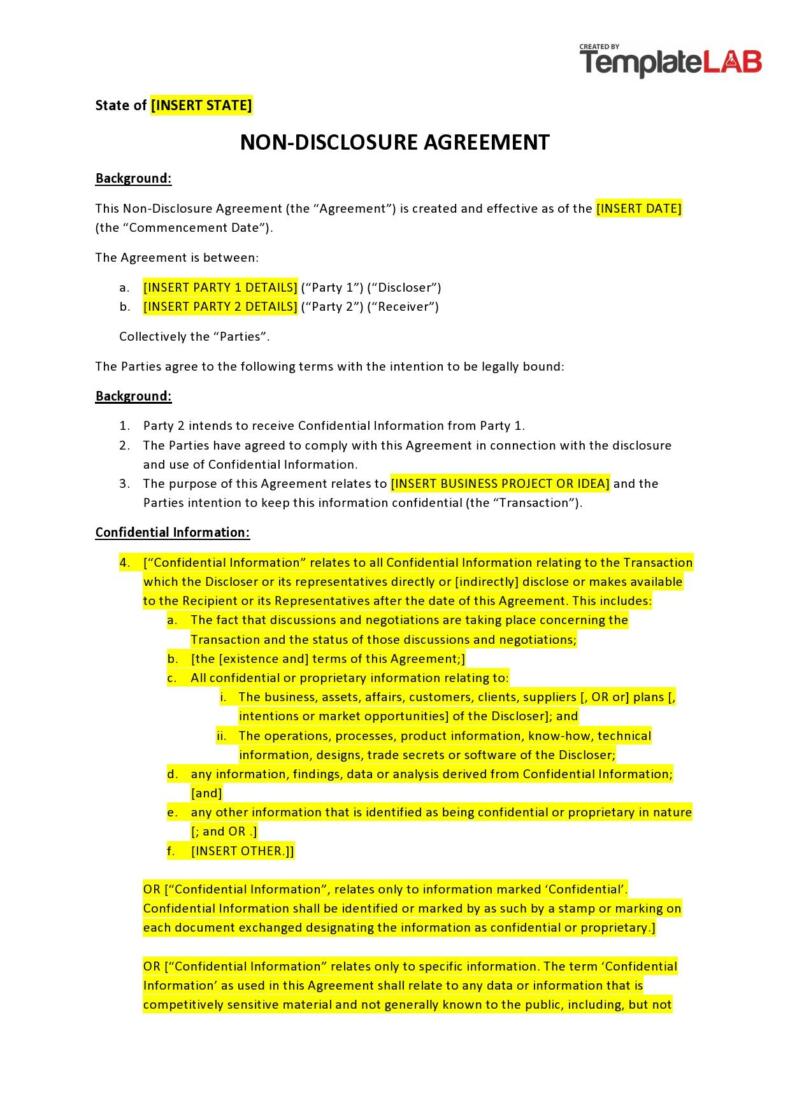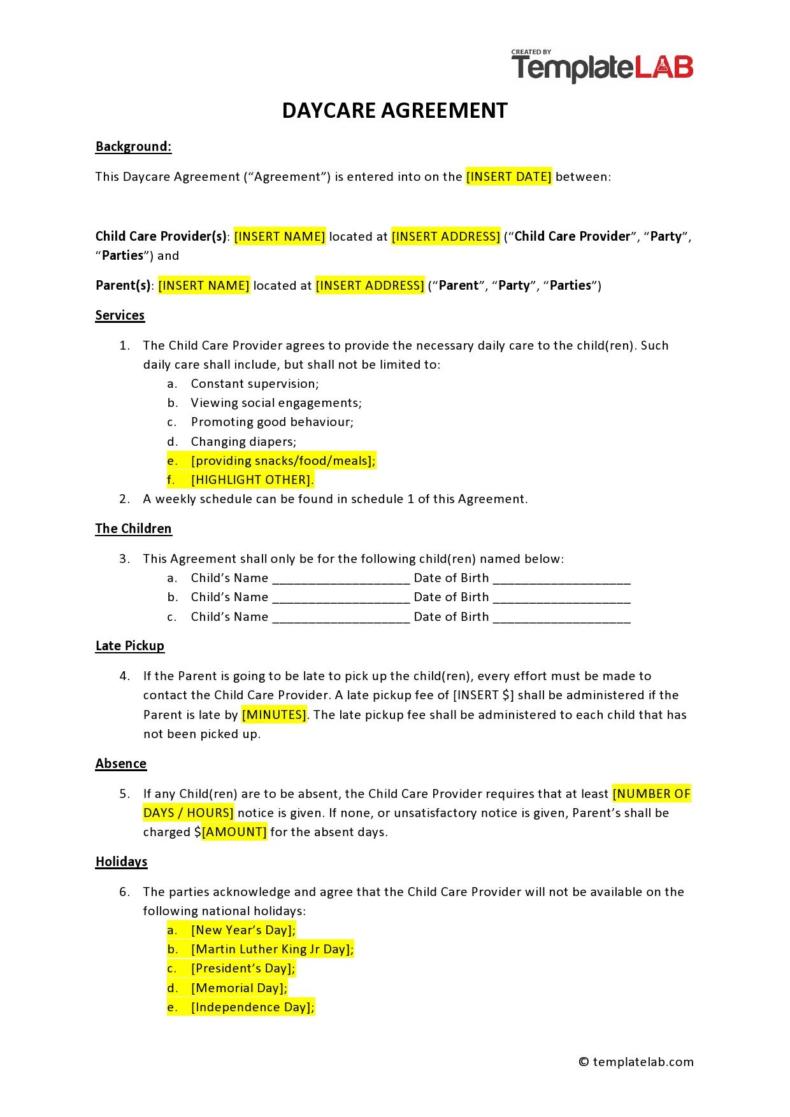The contractor agreement template that you write will be used for all of the deals that you make with clients. When you work using self-employment contracts, you will want to be sure that you are carefully documenting the rules and regulations of your agreement with care. The more detail that you add to your contractor agreement, the better. This is the main document that will allow you to govern the nature of your work with your client, both legally and personally.
Knowing how to write the correct contract for your line of work can make all the difference in the way that your work proceeds throughout the duration of the contract. This document offers legal protection as well as guidance for the way that the work will be done, and it is important that you get all the right information into the document from the start of your working relationship with each client.
Table of Contents
- 1 Independent Contractor Agreement Templates
- 2 What is an independent contractor agreement?
- 3 Simple Independent Contractor Agreement
- 4 What are some other names for contract agreements?
- 5 Independent Contractor Agreement Forms
- 6 Is an independent contractor agreement legally binding?
- 7 Self Employment Contracts
- 8 What should be included in an independent contractor agreement?
- 9 Blank Contractor Agreement Samples
- 10 Independent Contractor Agreements Are Necessary for Work of This Nature
Independent Contractor Agreement Templates
What is an independent contractor agreement?
Independent contractors are also known as freelancers. These people work temporarily with employers to take care of specific tasks, and then the working relationship ends when the work is completed. There are many industries where independent contractors are commonly hired to do jobs. The industries where this is most common are:
- Tech
- Healthcare
- Travel
- Writing
- Staffing
- Legal work
These are just a few of the various industries that commonly engage with contractors for services provided. This is not the case in all industries, but in some kinds of work, contractors are commonly hired to get jobs done.
The IRS will often require that this kind of contract exists between hiring entities and contract workers. Without this contract type on file, contractors and employers could be forced to pay taxes that they do not actually owe. This is one of the biggest benefits of having at least a simple contractor agreement on file to govern all of your relationships between your clients and yourself.
The independent contractor agreement that you create will offer legal protection at tax time, just as it offers legal protection if there are disagreements between a contractor and a client. Most people who work as a contractor will always have a blank contractor agreement on hand to make sure that their work is not limited by a lack of a contract.
There are a lot of different kinds of contract work that are governed by contractor documents that have been provided by an employer, but this is not always the case. You should be cautious when reading through provided contractor documents to be sure that they reflect your interests as a contractor fairly.
Simple Independent Contractor Agreement
What are some other names for contract agreements?
Contractor agreements go by other names, as well as the independent contractor agreement. These names do not impact the effect of the contract or change its legal nature. You can call your document any of these names and still use it for the same purposes:
- 1099 agreements
- Subcontractor agreements
- Independent contractor contract
- Freelancer contractor agreement
- Contract labor form
- Independent contractor form
These forms can be called by any name on this list and still be considered valid by the IRS and also by the two parties who are involved in the contract.
Independent Contractor Agreement Forms
Is an independent contractor agreement legally binding?
Independent contractor agreements are legally binding. So long as the document has been signed by both parties who are involved in the working relationship, the agreement is legally binding, and everyone involved will need to follow the guidelines that are set forth in the document.
Self Employment Contracts
What should be included in an independent contractor agreement?
1. Contractor Name and Information
The name and information of the contractor who is being hired will need to be included in the document, as well as their contact information. You will want to make sure that the legal business name of the contractor is used if the contract is with a business entity that they operate rather than the contractor doing business under their own name. This can be quite common in some industries and can lead to issues with using the document to prove that a working relationship existed down the road if the business name is not recorded correctly.
Make sure that the address and phone number of the contractor are on the document as well. Being able to get in touch with either party who is included in the agreement is important, and this information can save time for each of the parties later on.
2. Hiring Entity Information
Whether an individual has hired the contractor or a company has hired them, the complete legal name of the person or business must be included in the document. The business or person’s address and contact information need to be added to this part of the contract as well. Just like with the contractor’s information, the hiring entity needs to be correctly identified in the document to make sure that the contract is legal and enforceable.
3. Services Provided
The services that are going to be offered to the person who has hired the contractor must be carefully and correctly identified in this part of the document. This section might also need to indicate what is NOT included in the contract since the nature of contract work is often so specific. You will need to indicate any set deadlines that must be met for parts of the project here, as well as communicate any information about the way that the job will be completed for the contract to be complete and useful down the road.
Disputes often arise over services that are not carefully defined in this section of the contract, so you will want to be certain that you are not missing any information that helps explain how the work that you are engaged for will be done. Hiring entities will want to be sure as well to be detailed in their expectations to ensure that timelines are met, and the project can be completed with relative ease. This is a part of the document where too much detail is not really ever an issue.
4. Compensation
The compensation that you want to set forth for the job needs to be clear to find in this part of the contract. The exact nature of the payment, the dates of the payment, and the means by which the client will deliver payment at the end of the job need to be included in the contract as well. Compensation is often one of the places where there can be disputes between a client and a business or a hiring person. The clearer the compensation portion of the contract, is less likely it is that there will be legal wrangling down the road between the two parties.
If there are set payment dates that must be met during the time that the job is active, the payment dates and details need to be included in this part of the document as well. While it is not common for direct deposit to be used for payment to a contractor, details like this must also be included when there are multiple payment dates.
5. Term and Termination
The term of the contract between the two parties should be carefully indicated in the section of the contract. The start date, as well as the end date of the job, should be indicated, and any sections of work that need to be delivered at specific dates should be described as well. Termination might be initiated by either party in this kind of working agreement, and the information that governs termination of the contract will have to be carefully explained in this part of the document as well.
One of the benefits of contract work is that the contractor can terminate the contract at any time that they so desire. While legal action might be taken if the contract is broken against the terms that are laid out within the document, the contractor can still choose to cease work on a job at any time. This is the primary difference between employees and contractors, and it is one of the reasons that this document is so important.
6. Confidentiality and Intellectual Property Rights
If confidentiality is involved in the job of noncompete or some other form of confidentiality agreement might need to be included in this part of the contract. Intellectual property rights can also be a factor when work is not owned by one party alone. These clauses need to be carefully laid out in the independent contractor agreement to prevent disputes down the road.
In some industries, confidentiality and intellectual property rights are much more common and can be linked. Not every kind of business works this way, but you should know if you do need to include this portion of the contract based on your line of work.
7. Insurance
If any form of insurance needs to be on file to protect safety during the job that is being completed, this information must be added to the contract at this point. This is more common in industries such as construction or in any hands-on line of work, and it might not apply to your situation. Policy number, insurance company, and any other relevant information related to the insurance that is in place must be included in the agreement.
8. Governing Laws
If there are governing laws or other legal information that needs to be included in this contract, you will want to add it in its own section. Legal information and guidelines can be state-specific, so make sure that you are aware of the legal and contractual rules that need to be added to your agreements. In cases where there is no actual legal governance that needs to be called out in detail, this section can be excluded. This is rare, however, and there are almost always legal considerations that need to be added to contracting agreements.
9. Signatures
Both parties have agreed to take out the contract for the job in question and must sign the document for it to be legally binding. The signature lines must be dated as well to show the date that the contract was agreed upon by both parties. Without signatures, the document is not considered legally binding and is not considered to be a contractual agreement that governs the work in question. Working without a contractual agreement in place is never a good idea, and taking the time to create this document means that you should be certain that it gets signed.
Legal documents that are missing signatures are of no use legally. Be sure as well that the correct person is signing the document. If you collect the signature of someone who cannot represent the company in question which has hired you, your contract will be invalid. The same limitation applies to those who are hiring contractors if they are to collect a signature that is not from the contractor who is going to be delivering the work.
Blank Contractor Agreement Samples
Independent Contractor Agreements Are Necessary for Work of This Nature
Without a legal independent contractor agreement in place, there can be no protections for either party engaged in a contractor working relationship. The nature of this kind of work necessitates that a thorough and detailed contract be laid out so that both parties know what to expect from the job in question. Payment deadlines, as well as completion deadlines, are easier to explain and document when there is a contract in place to protect them.
Contractor agreements are one of the most essential documents that those working in this way must have on hand at all times. There are legal and tax reasons that this document must be present to govern relationships between contractors and those who have hired them. Without legal proof of the relationship between a contractor and a hiring entity, there can also be lots of legal trouble down the road if there is a dispute about the work in question or the payment for that work.

